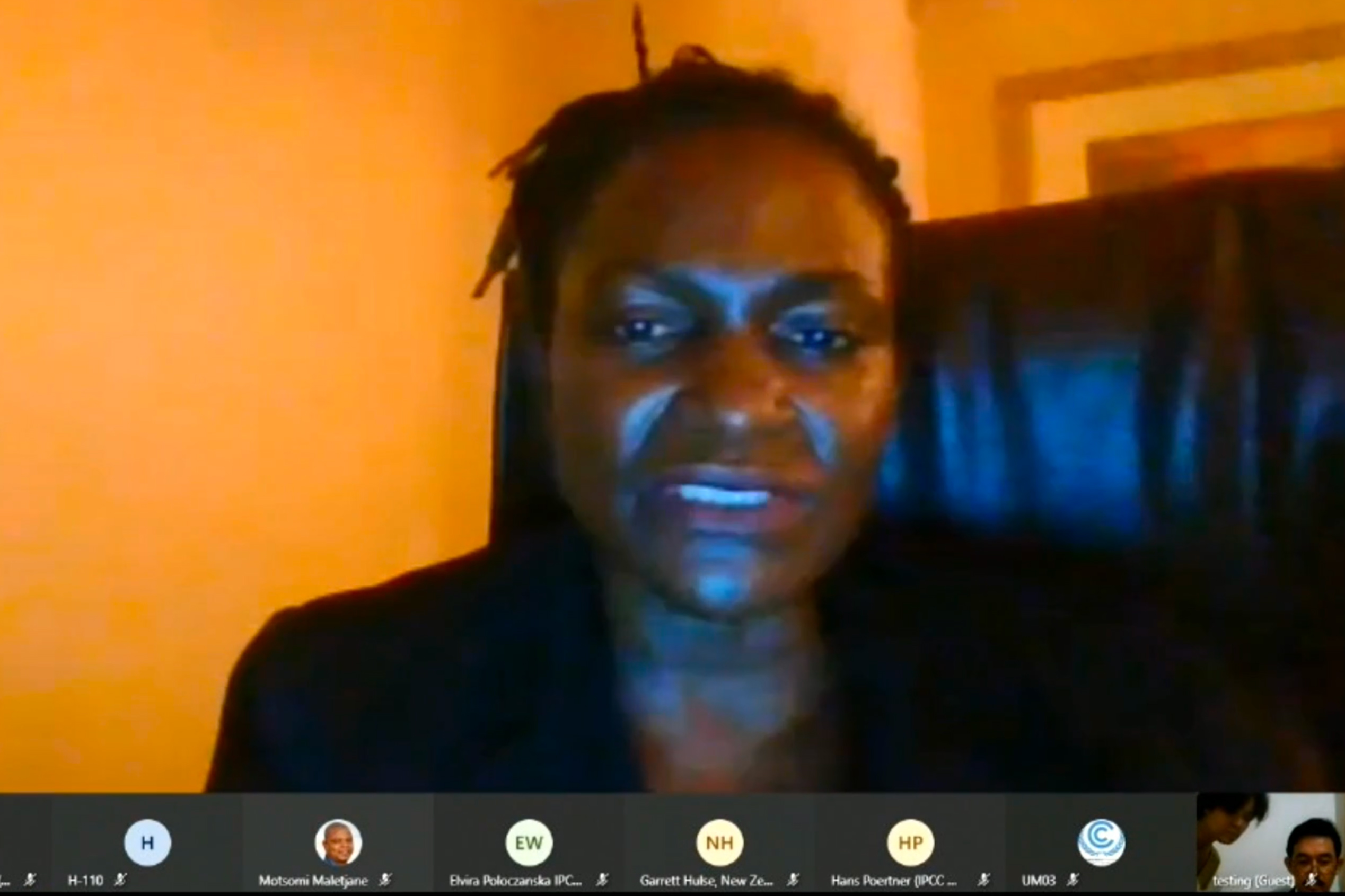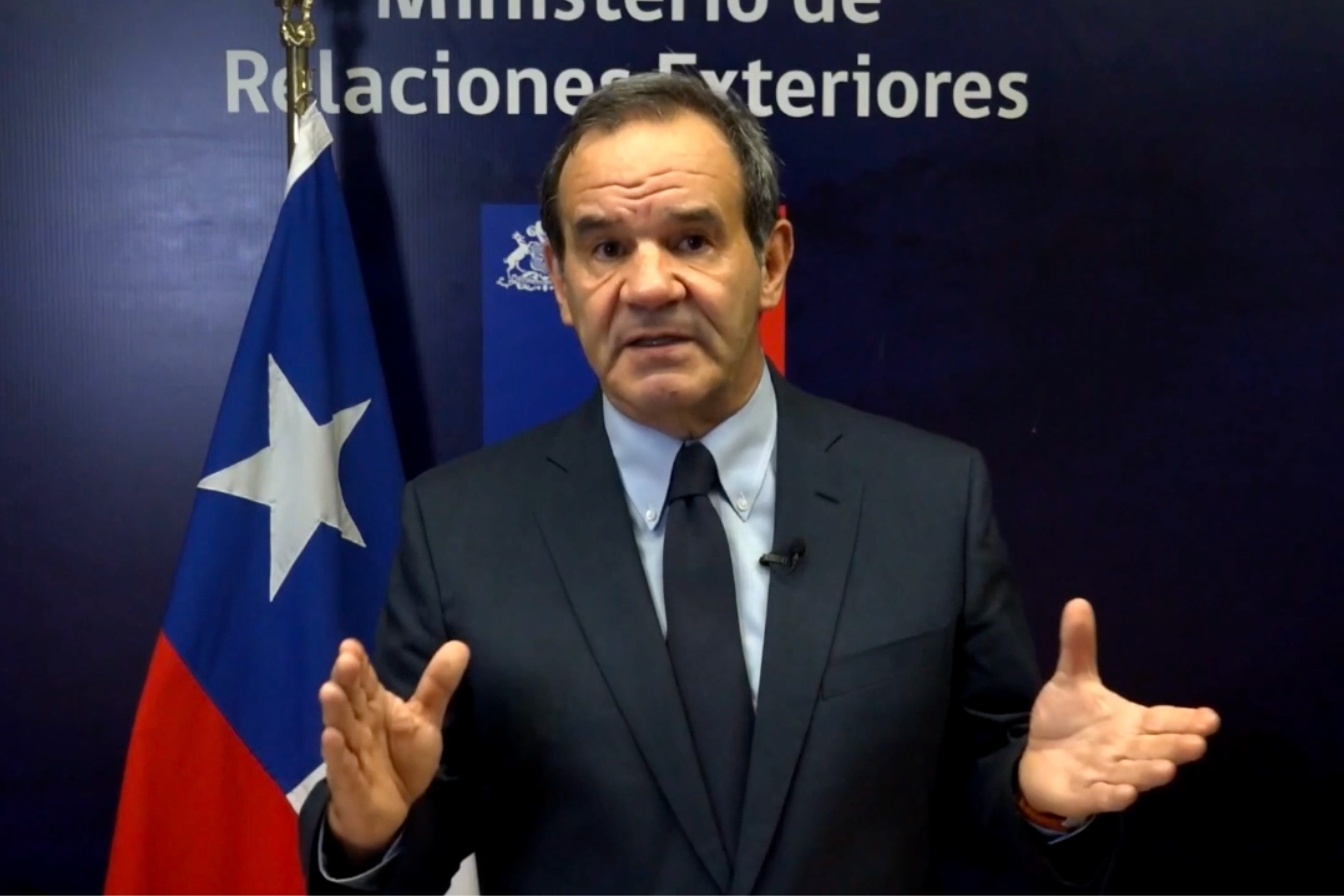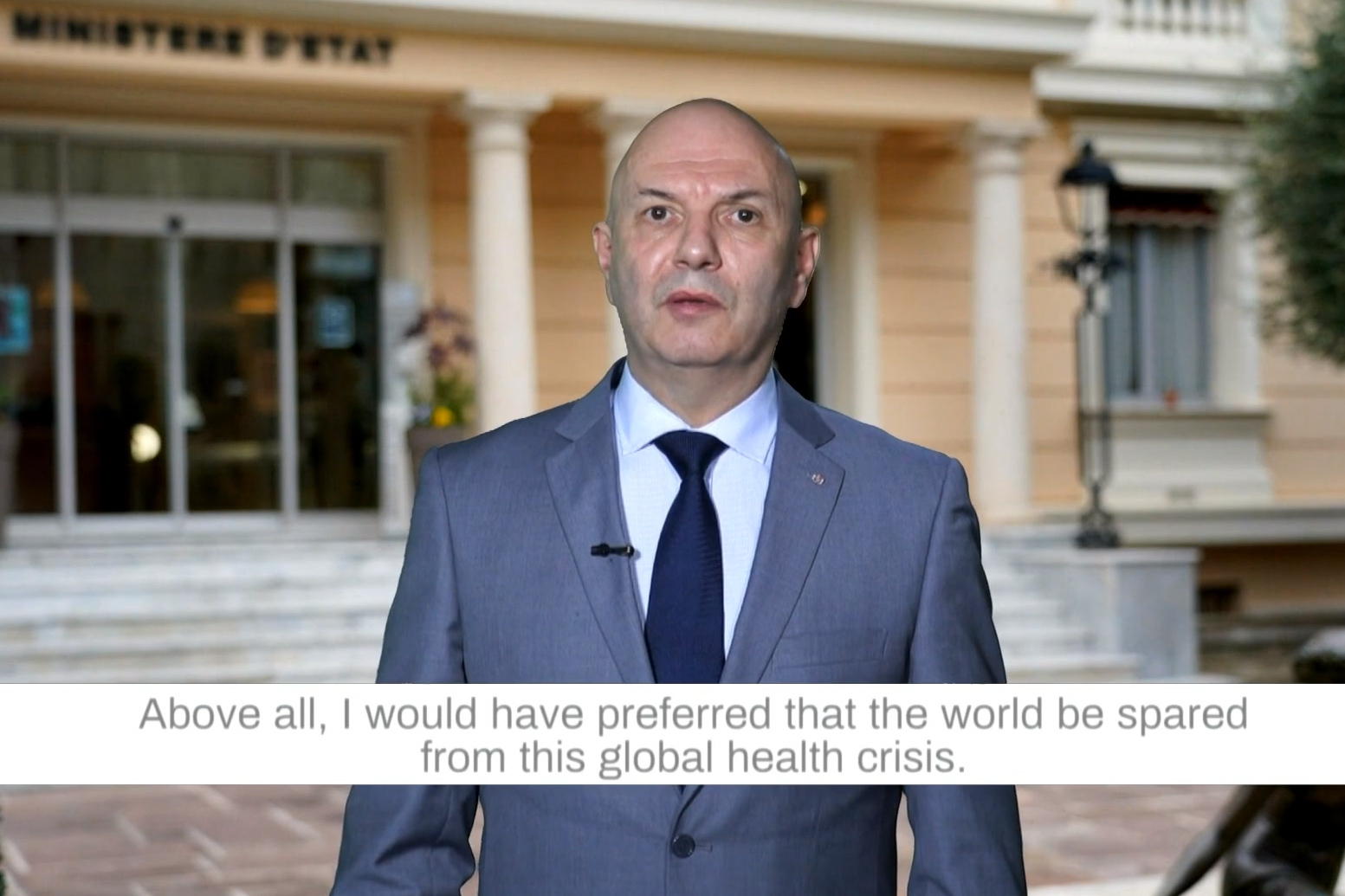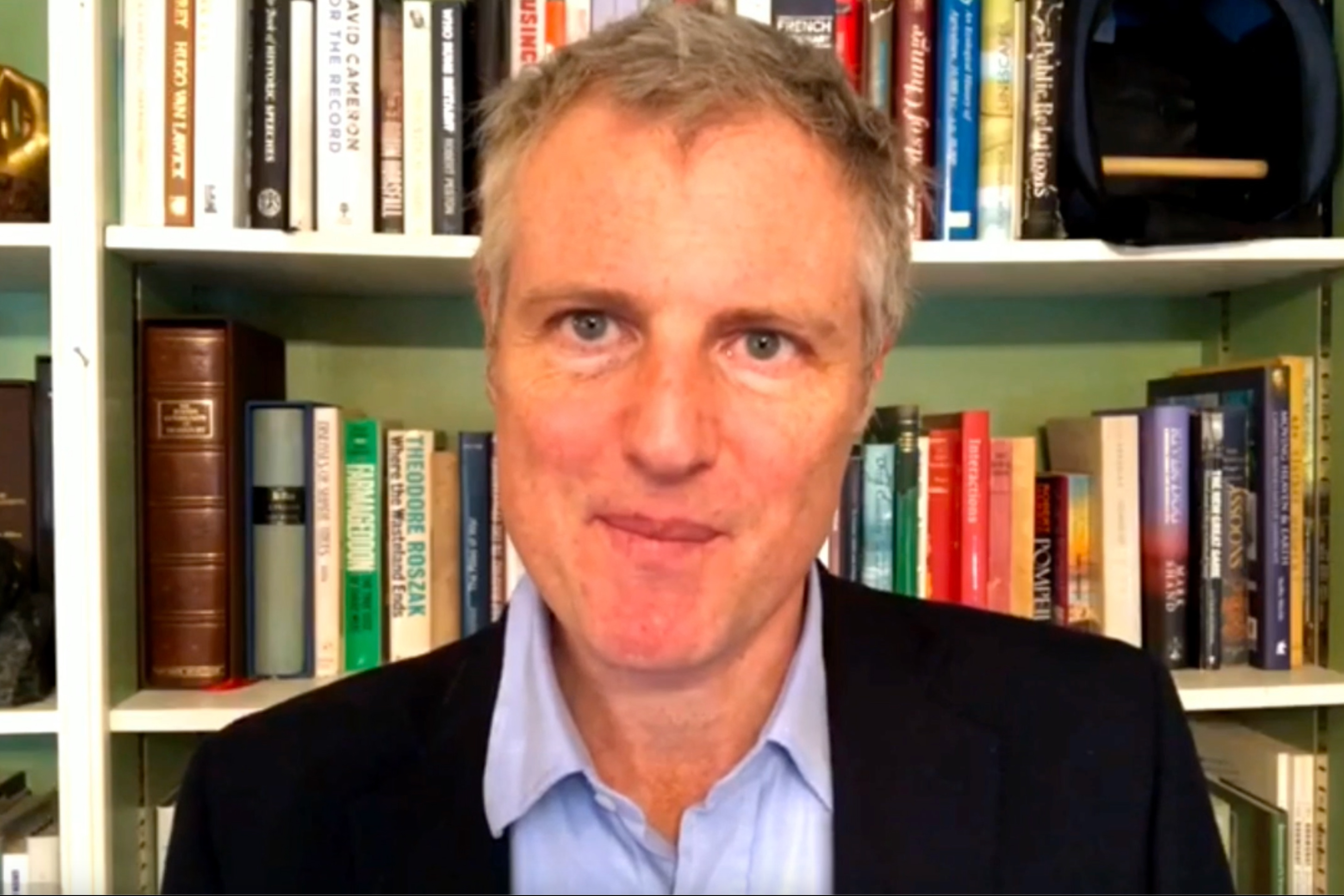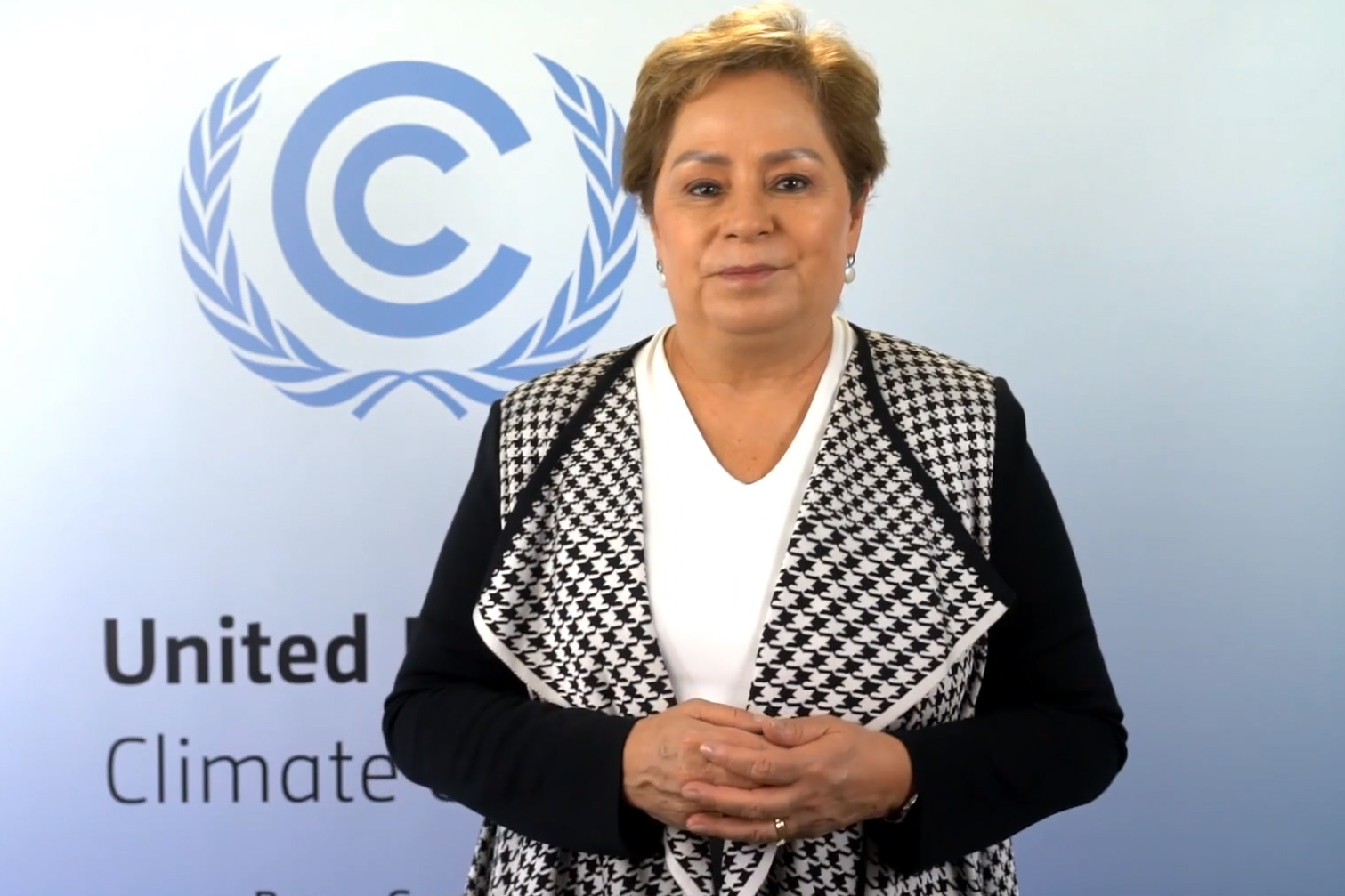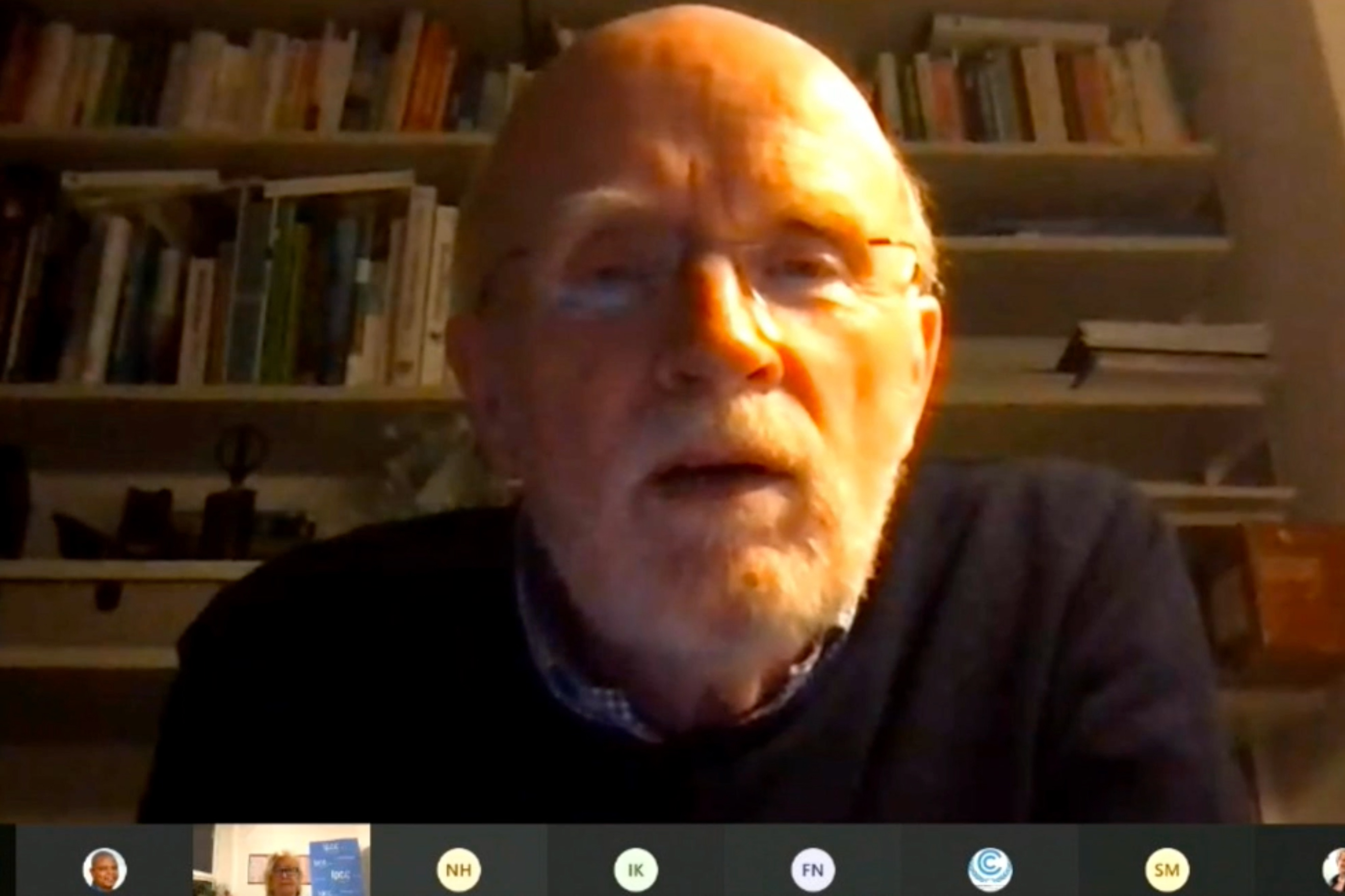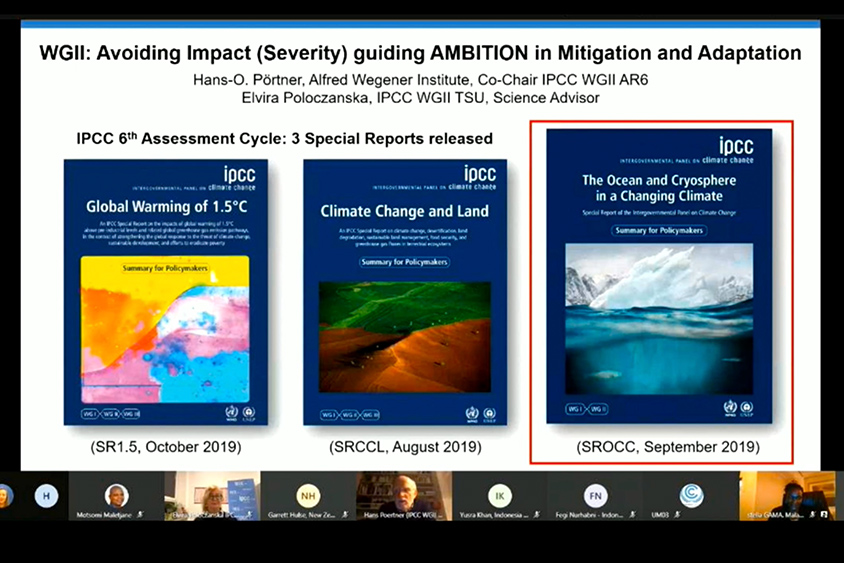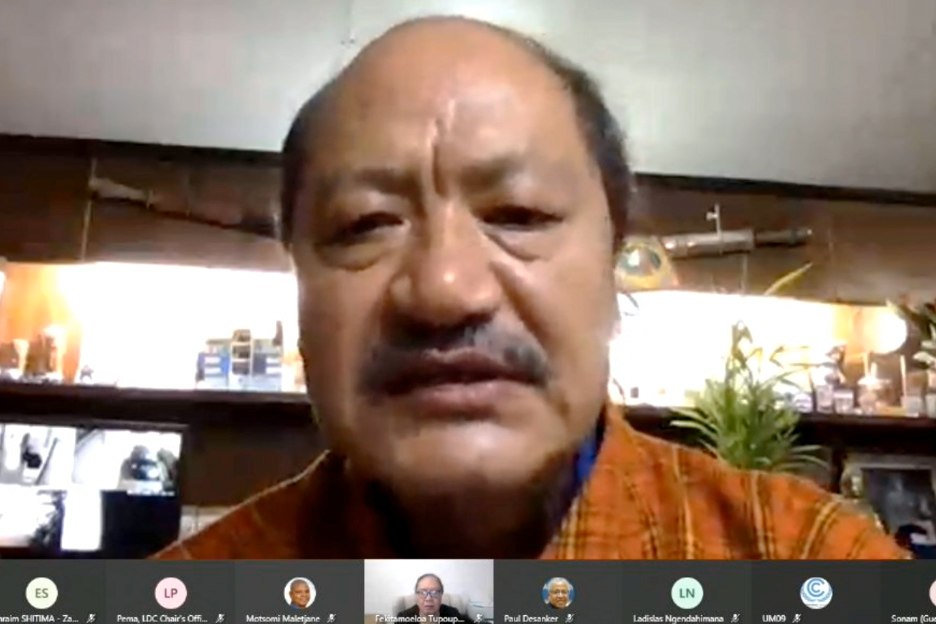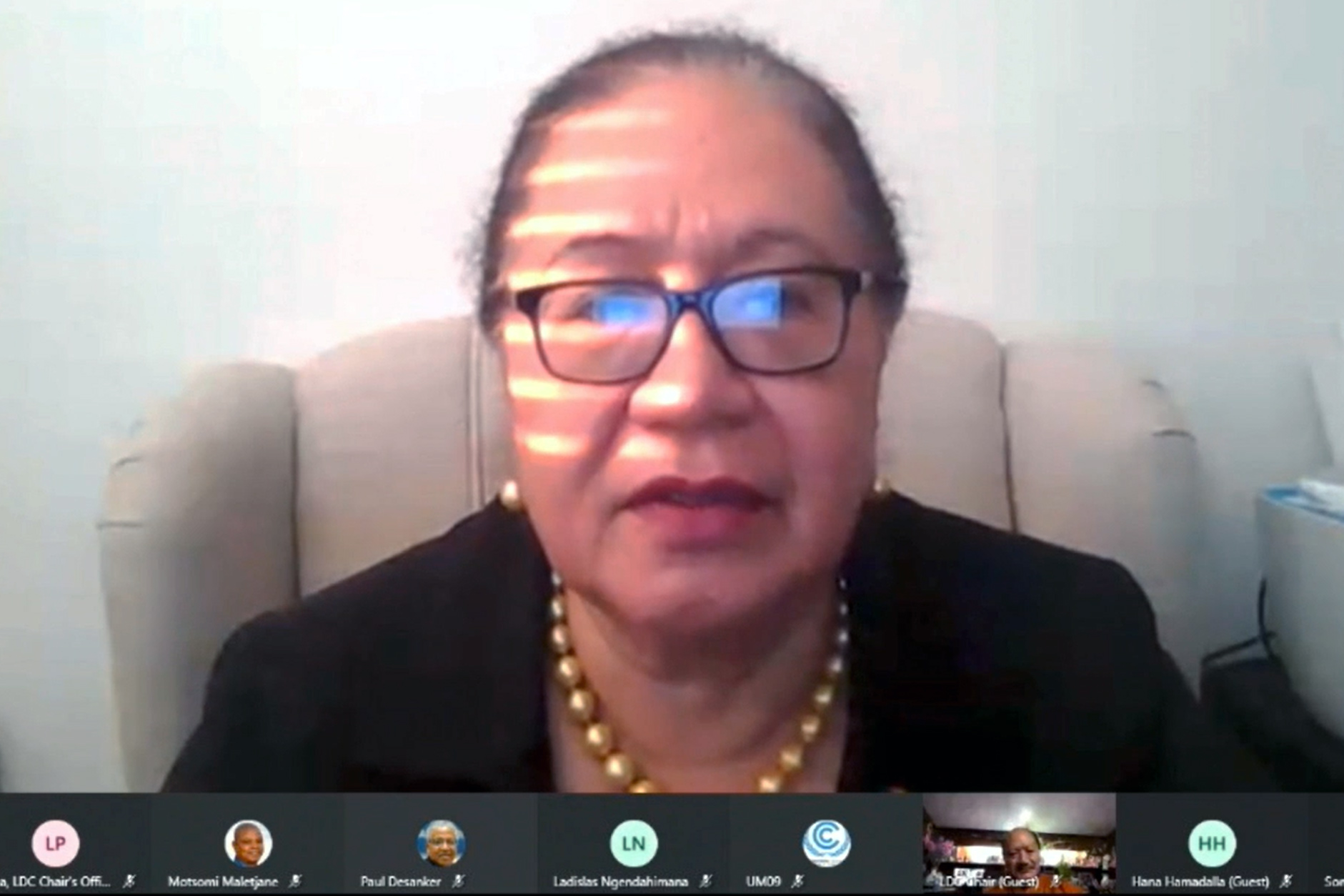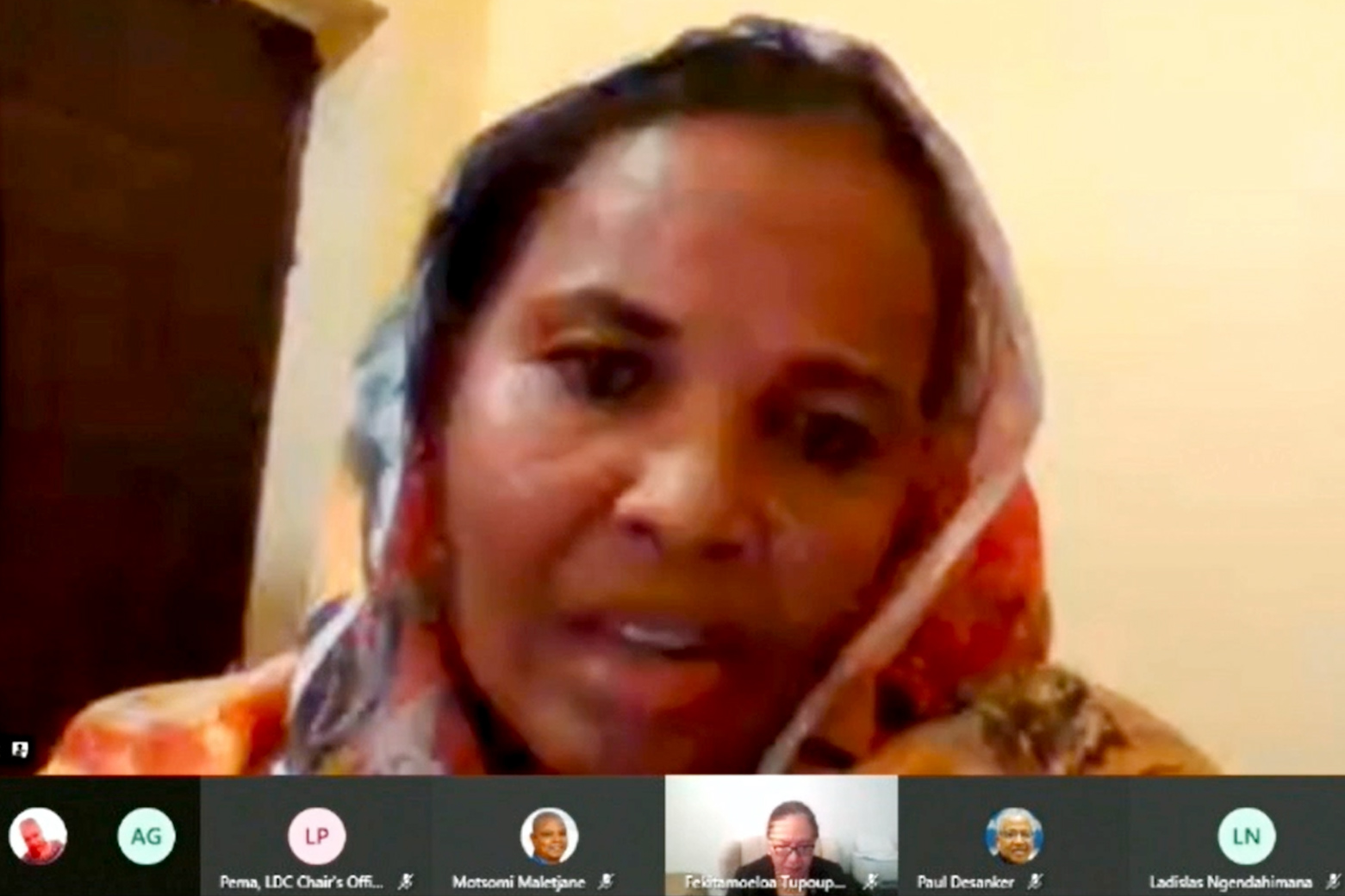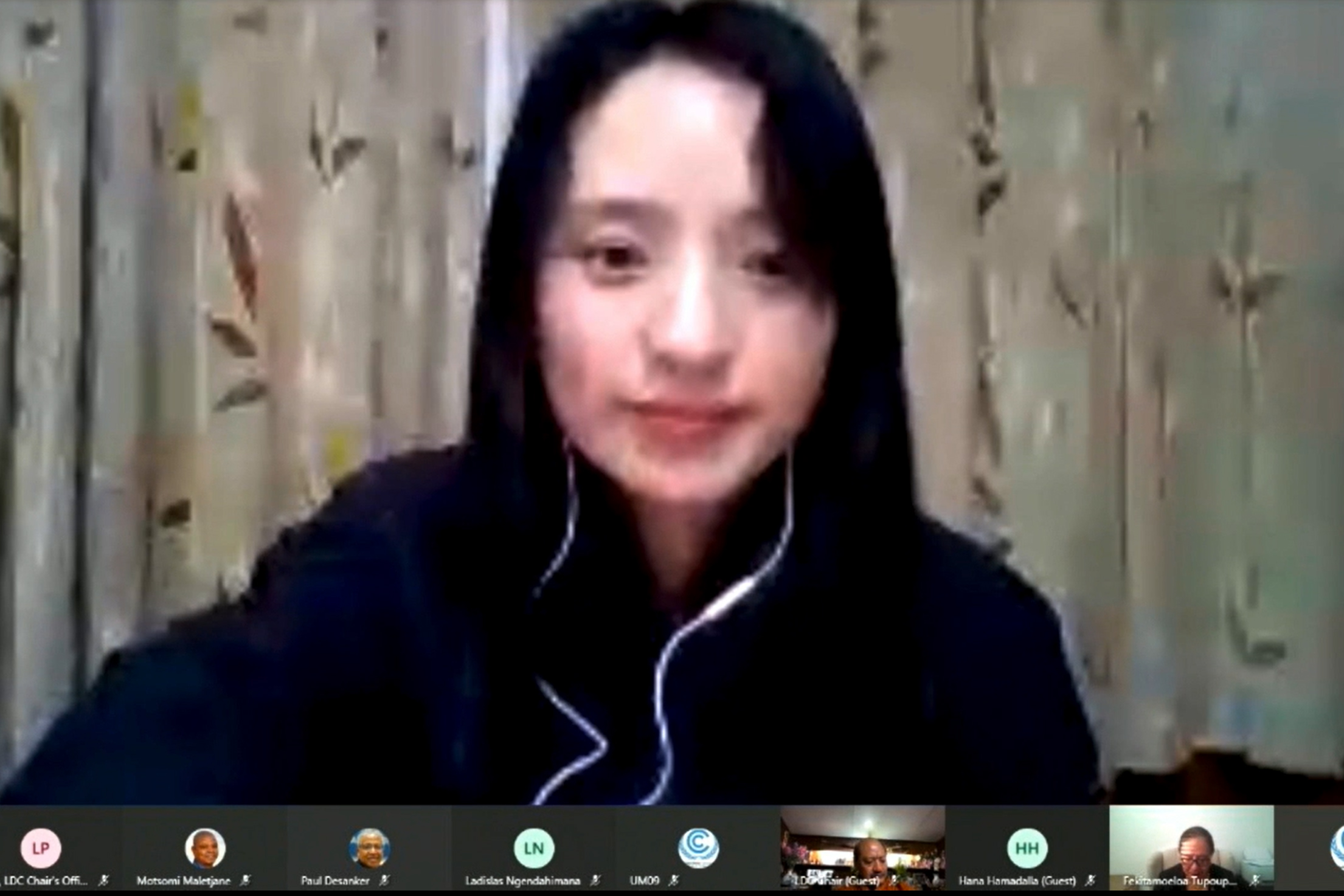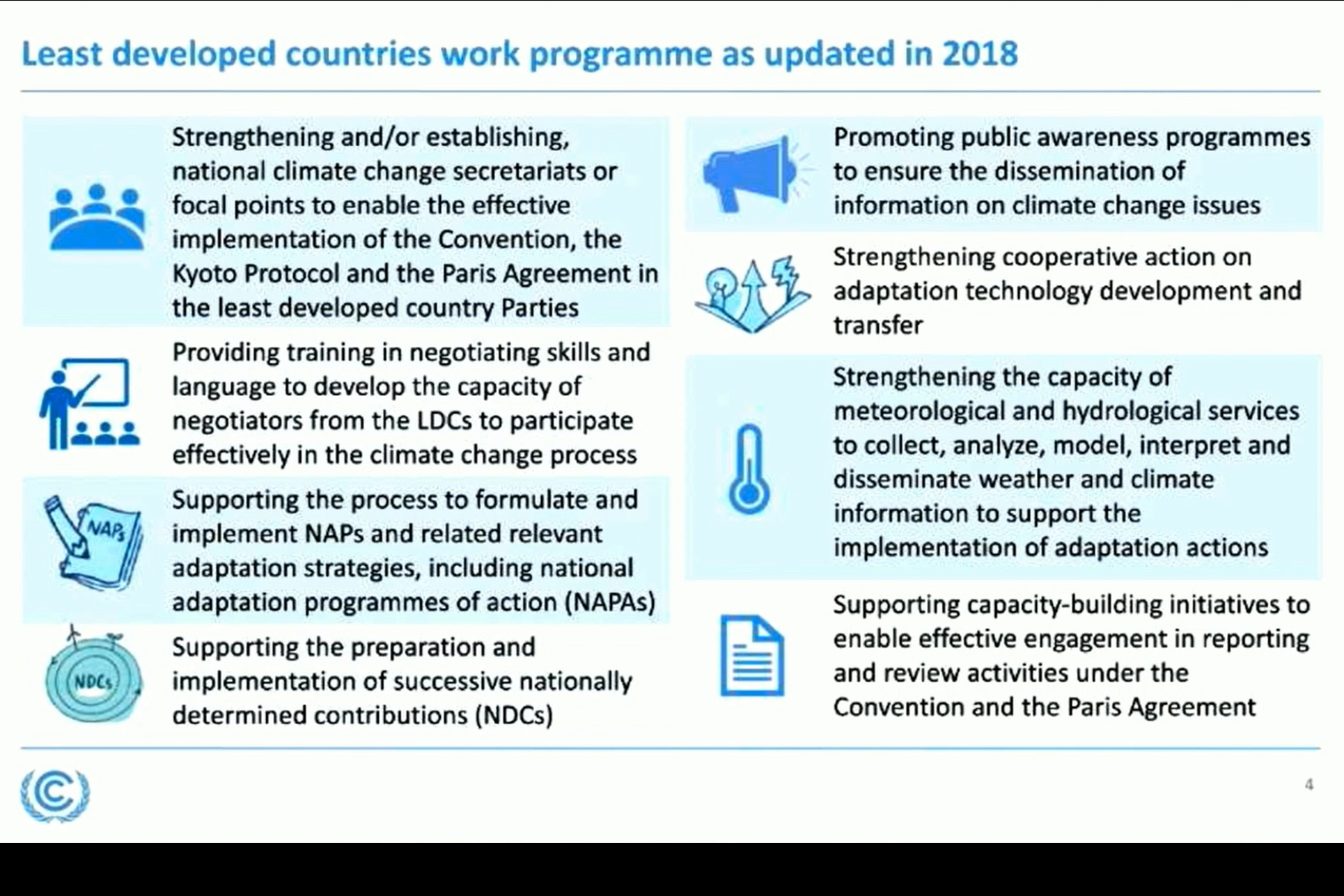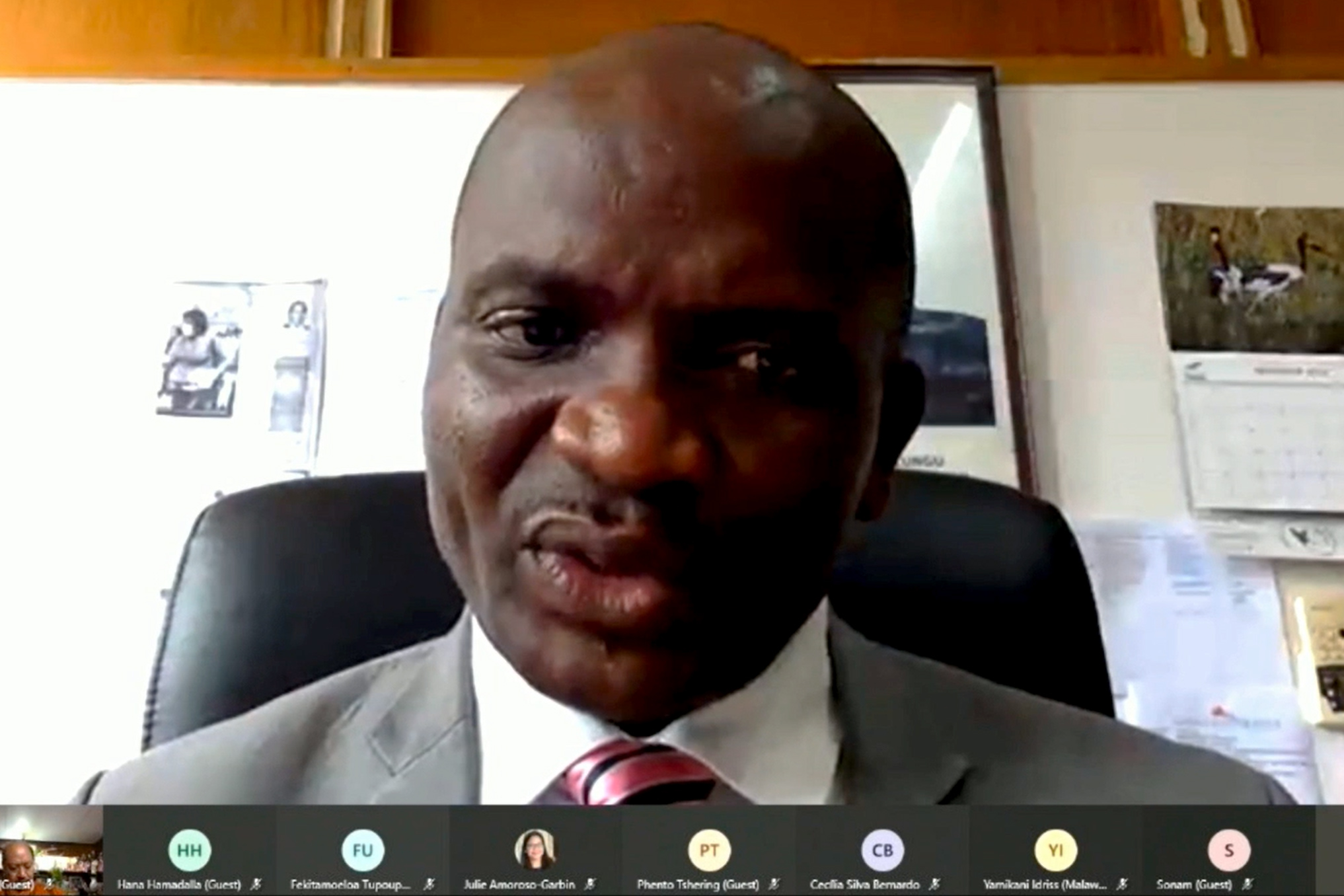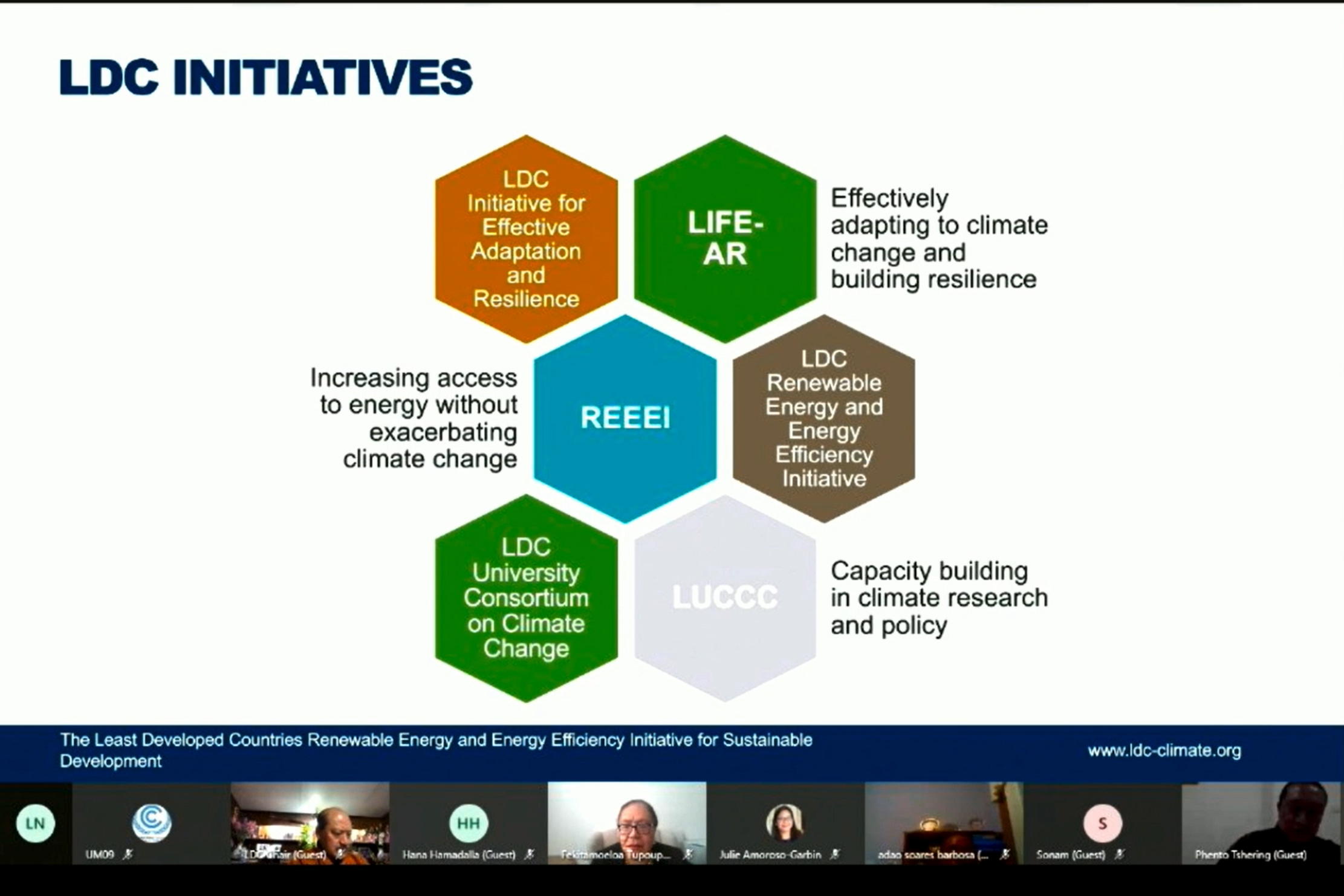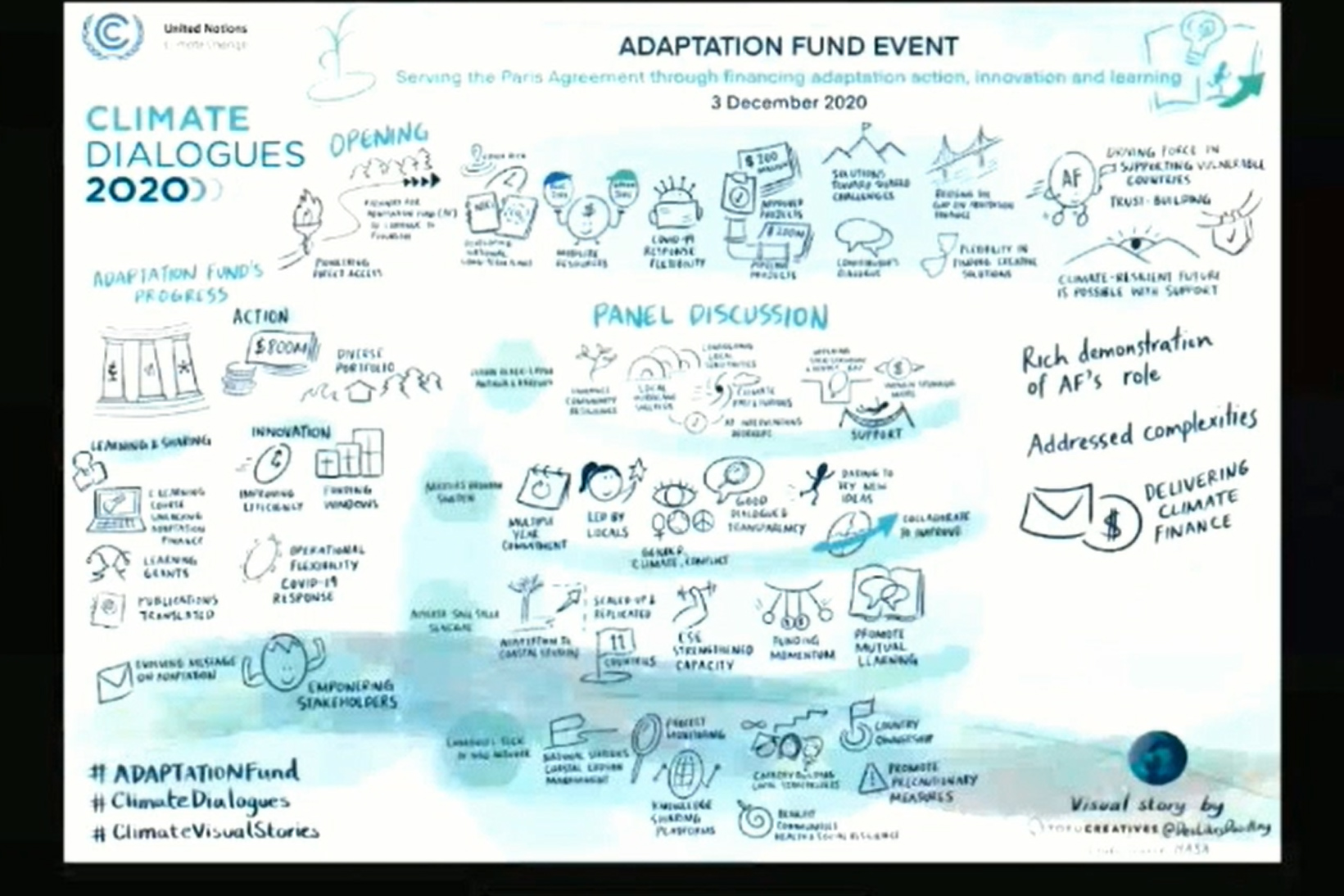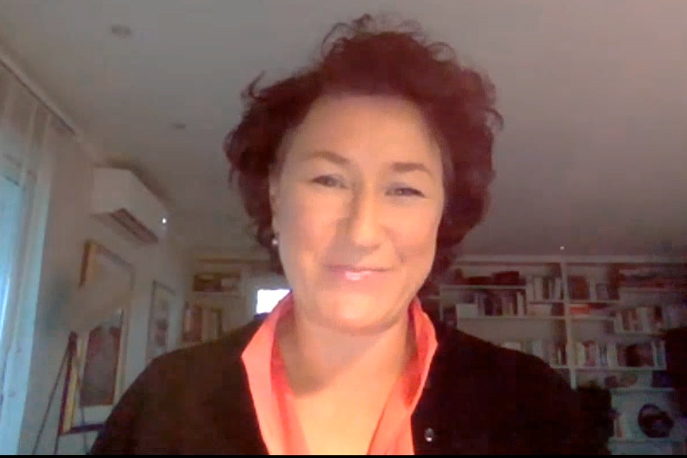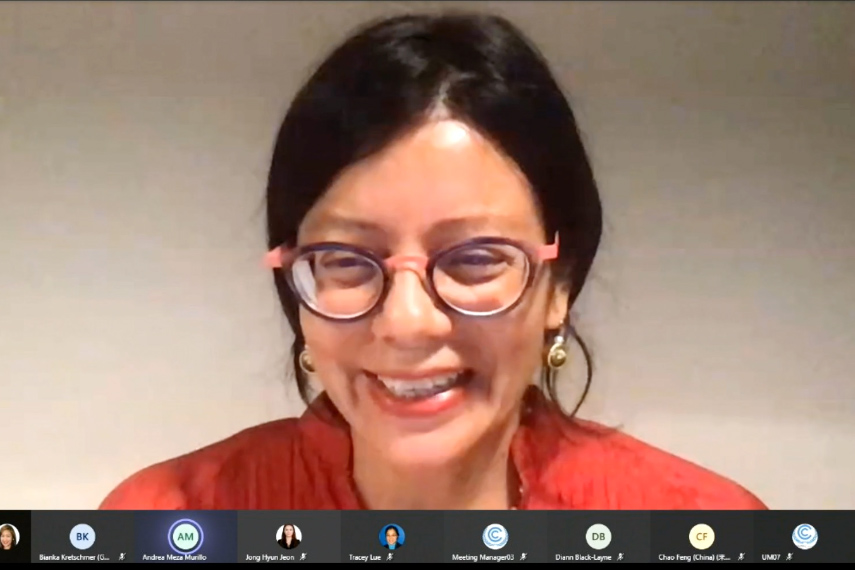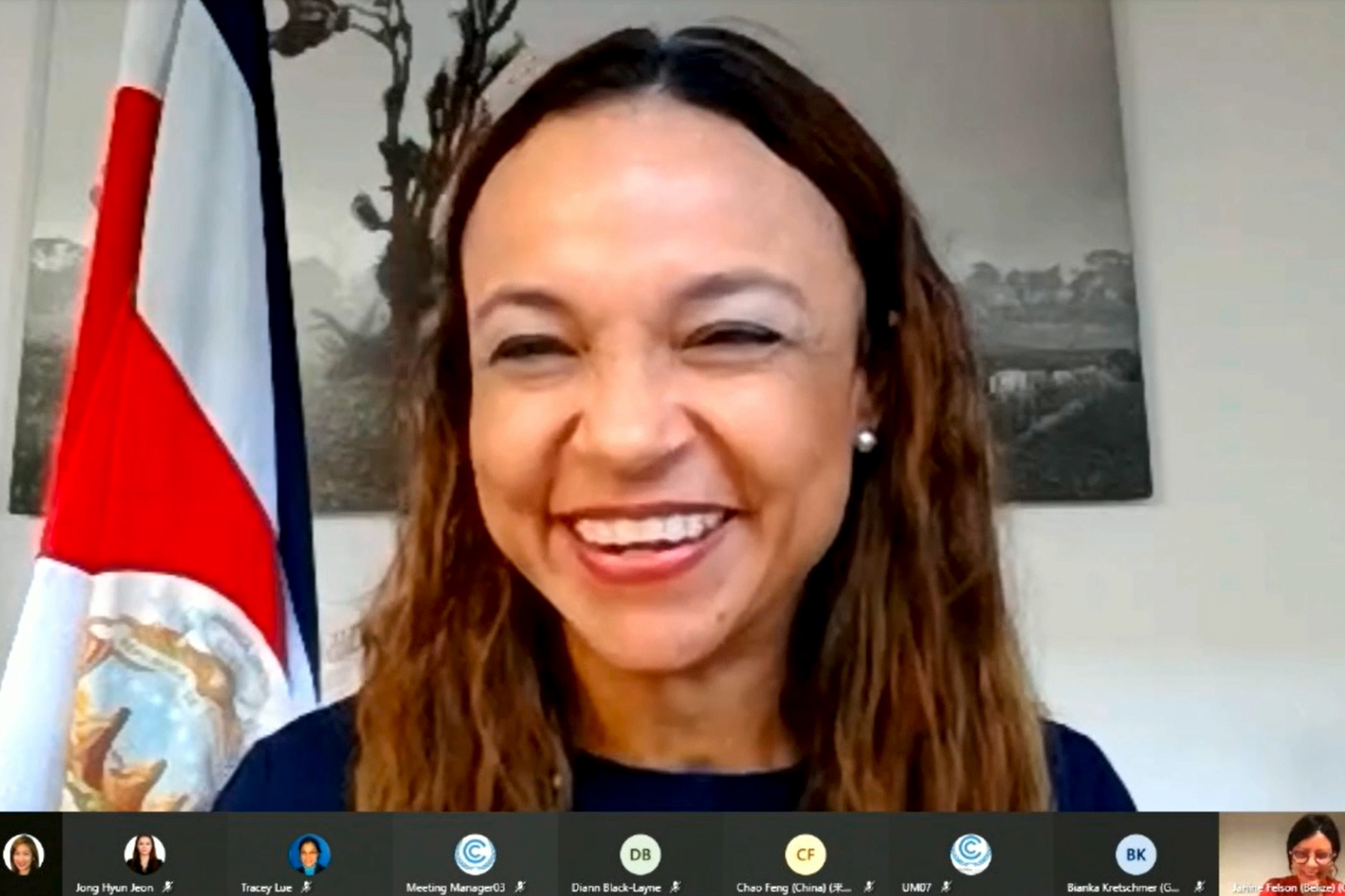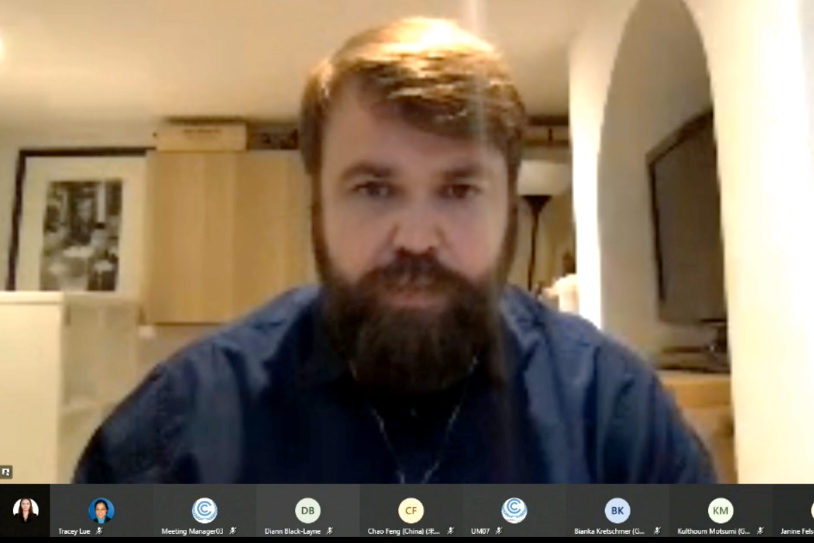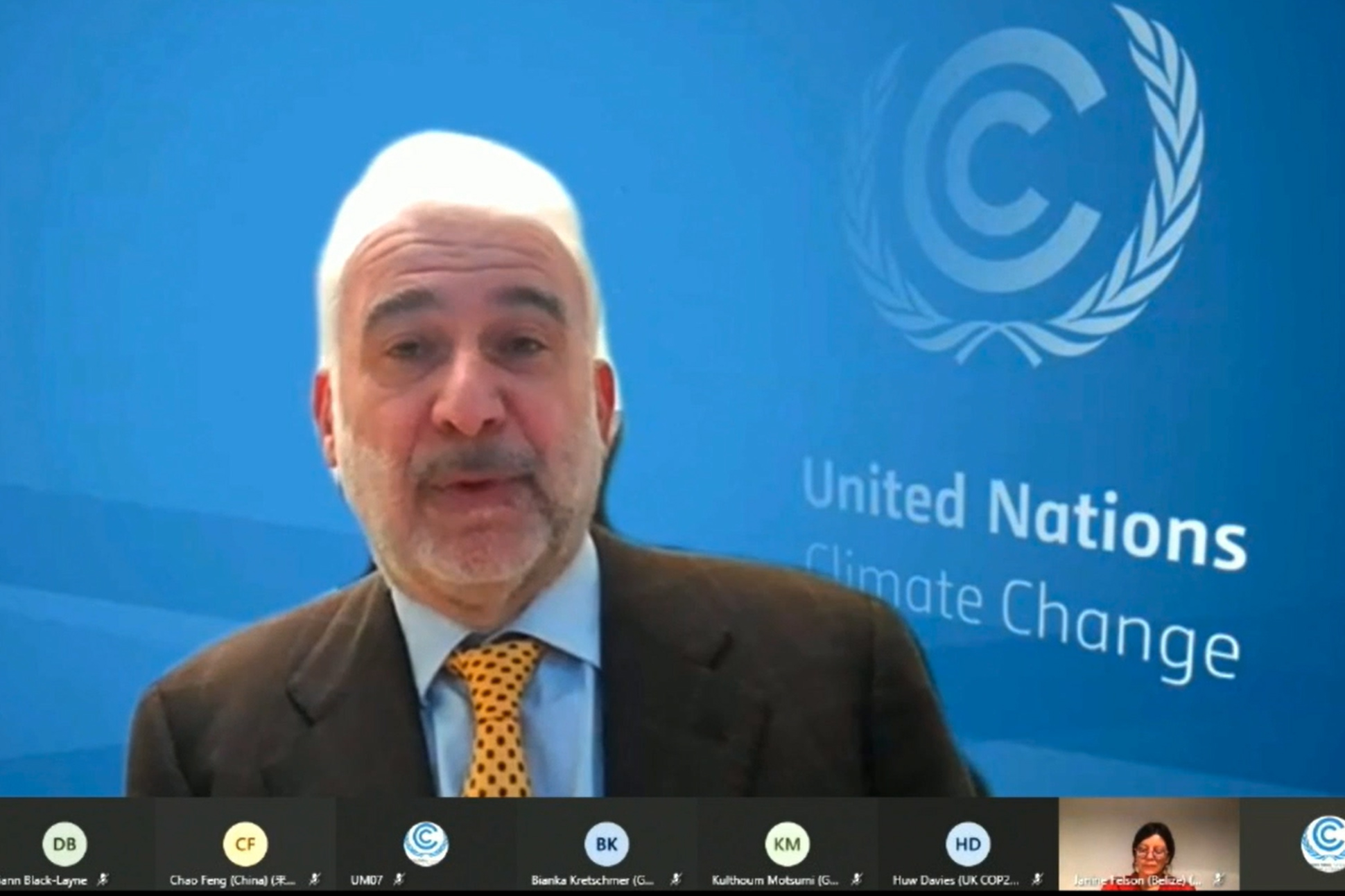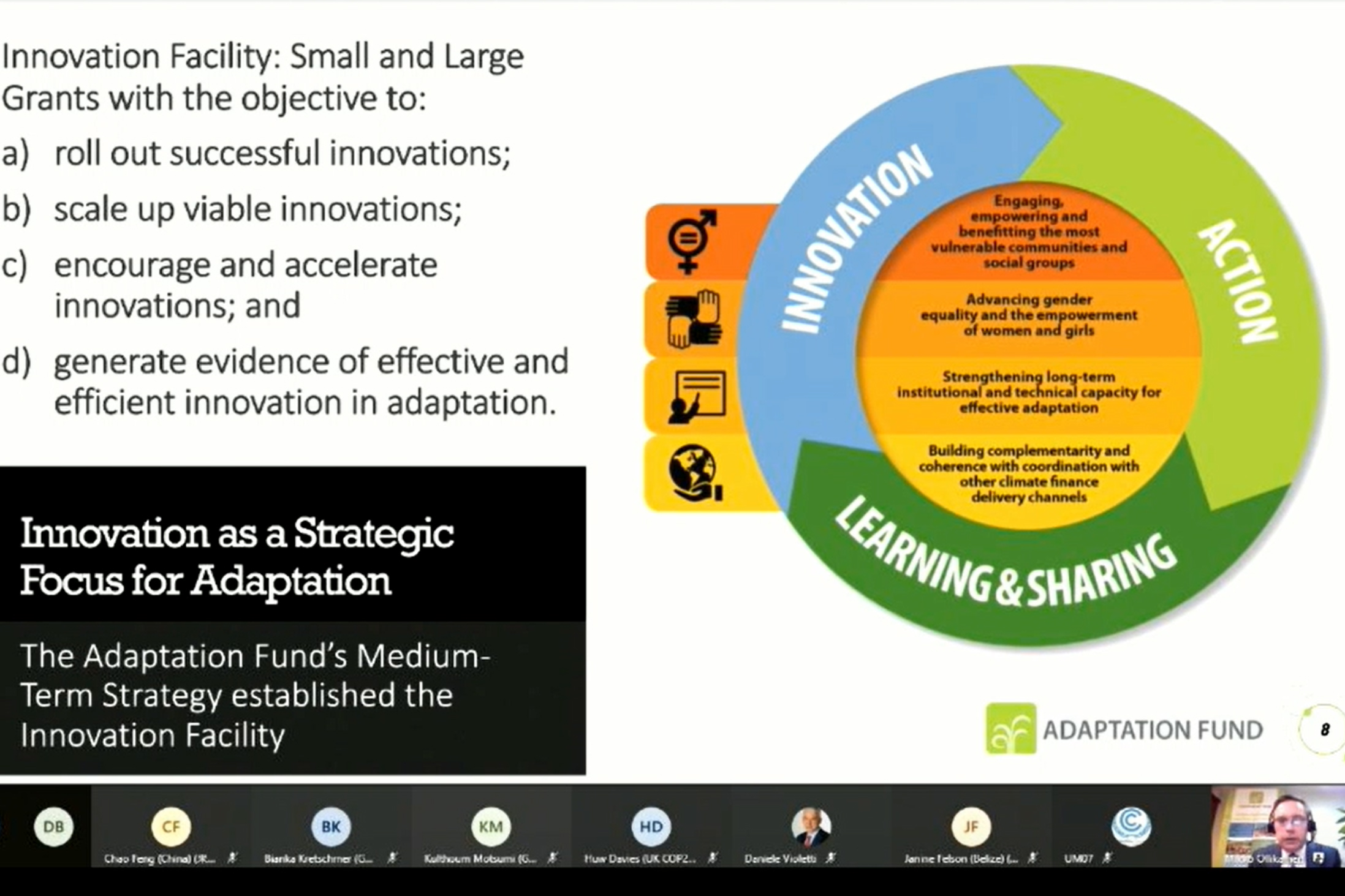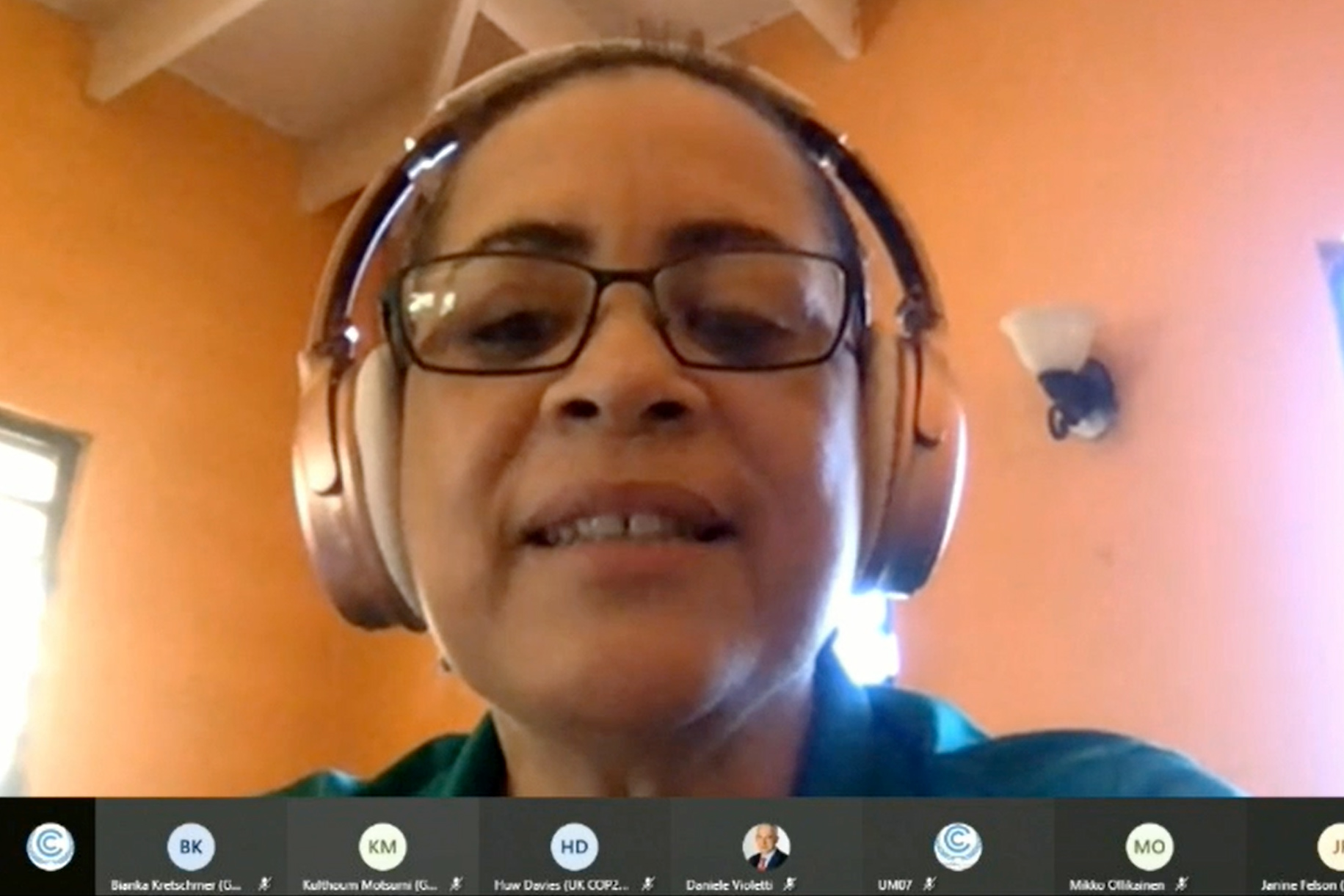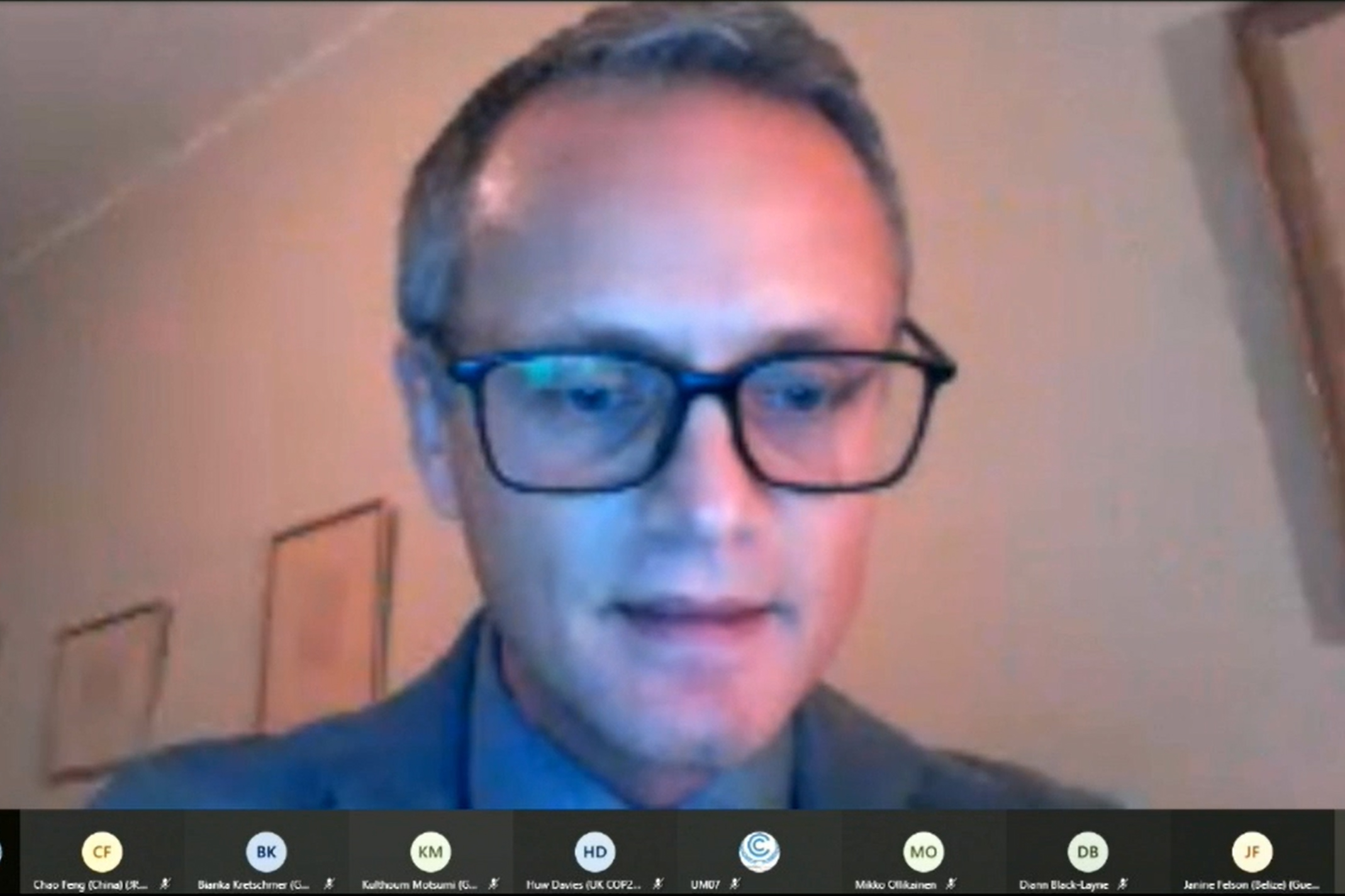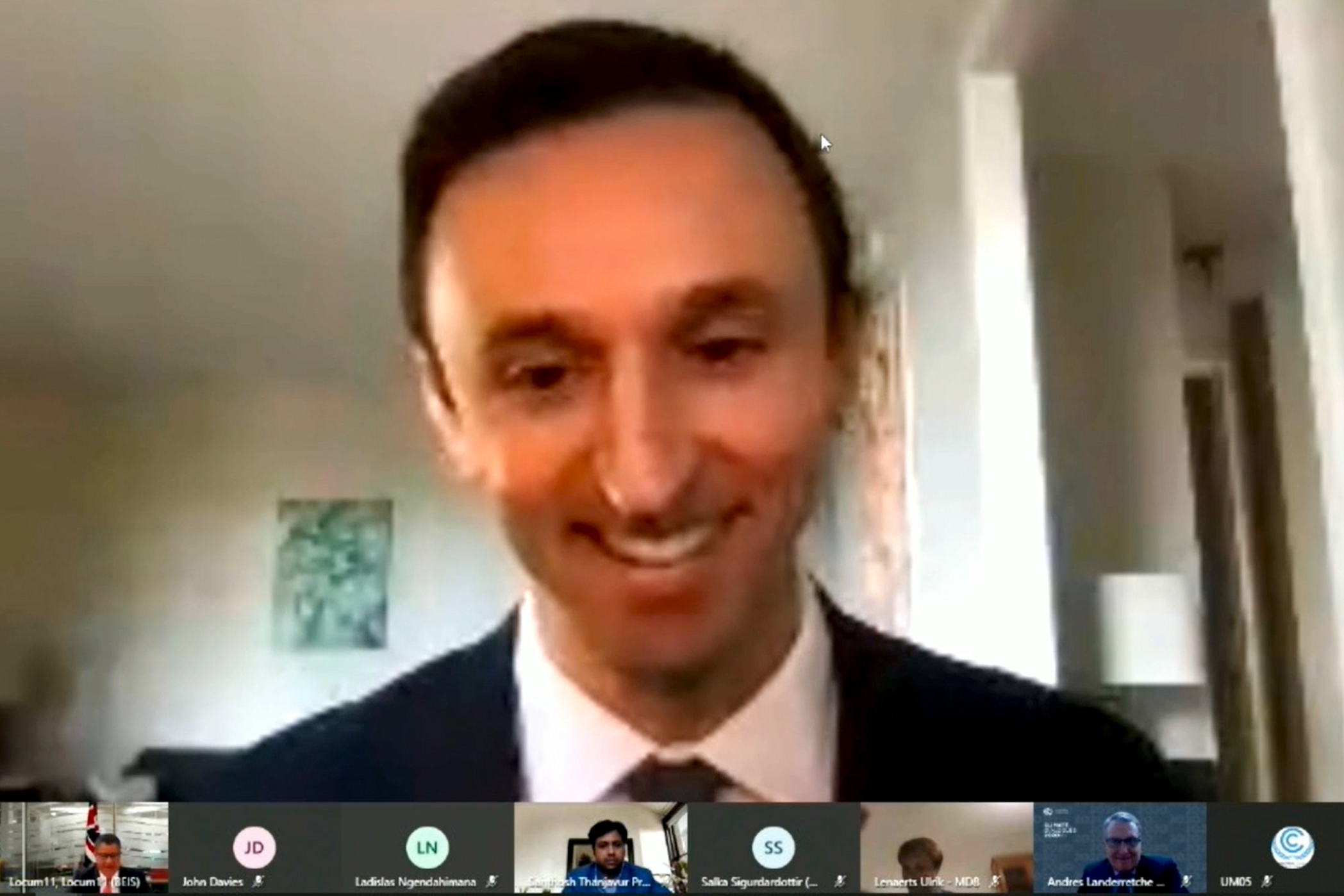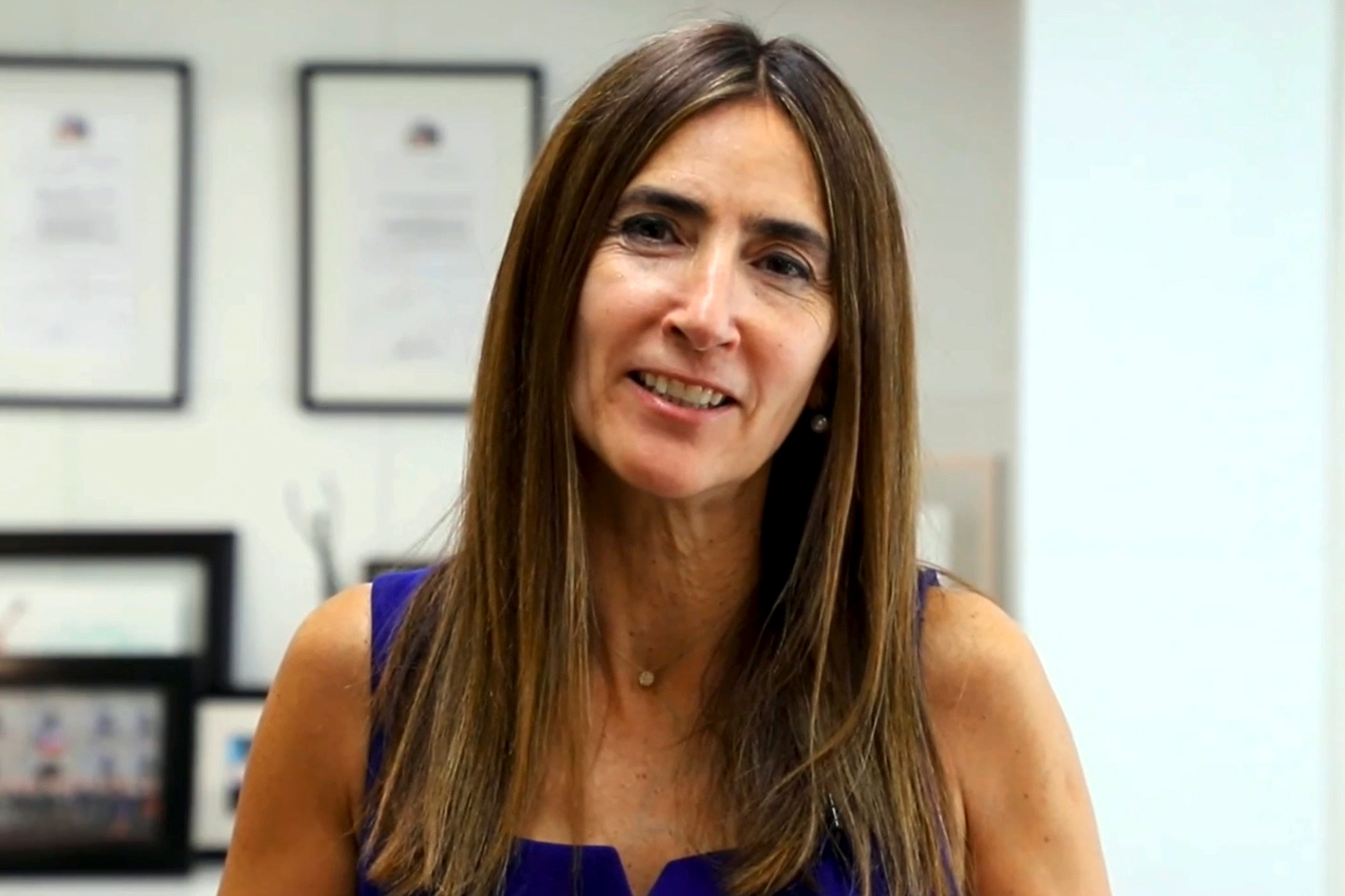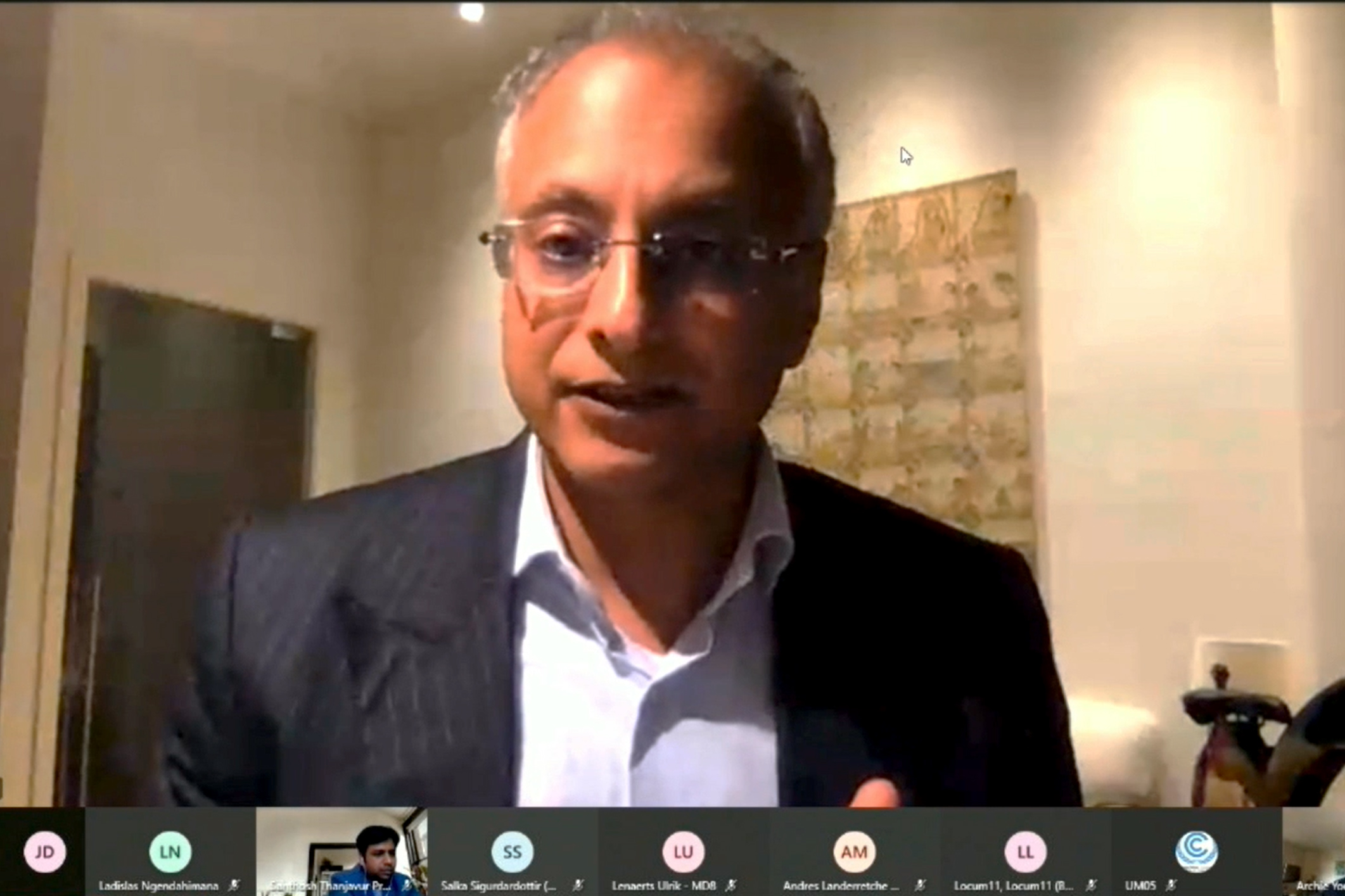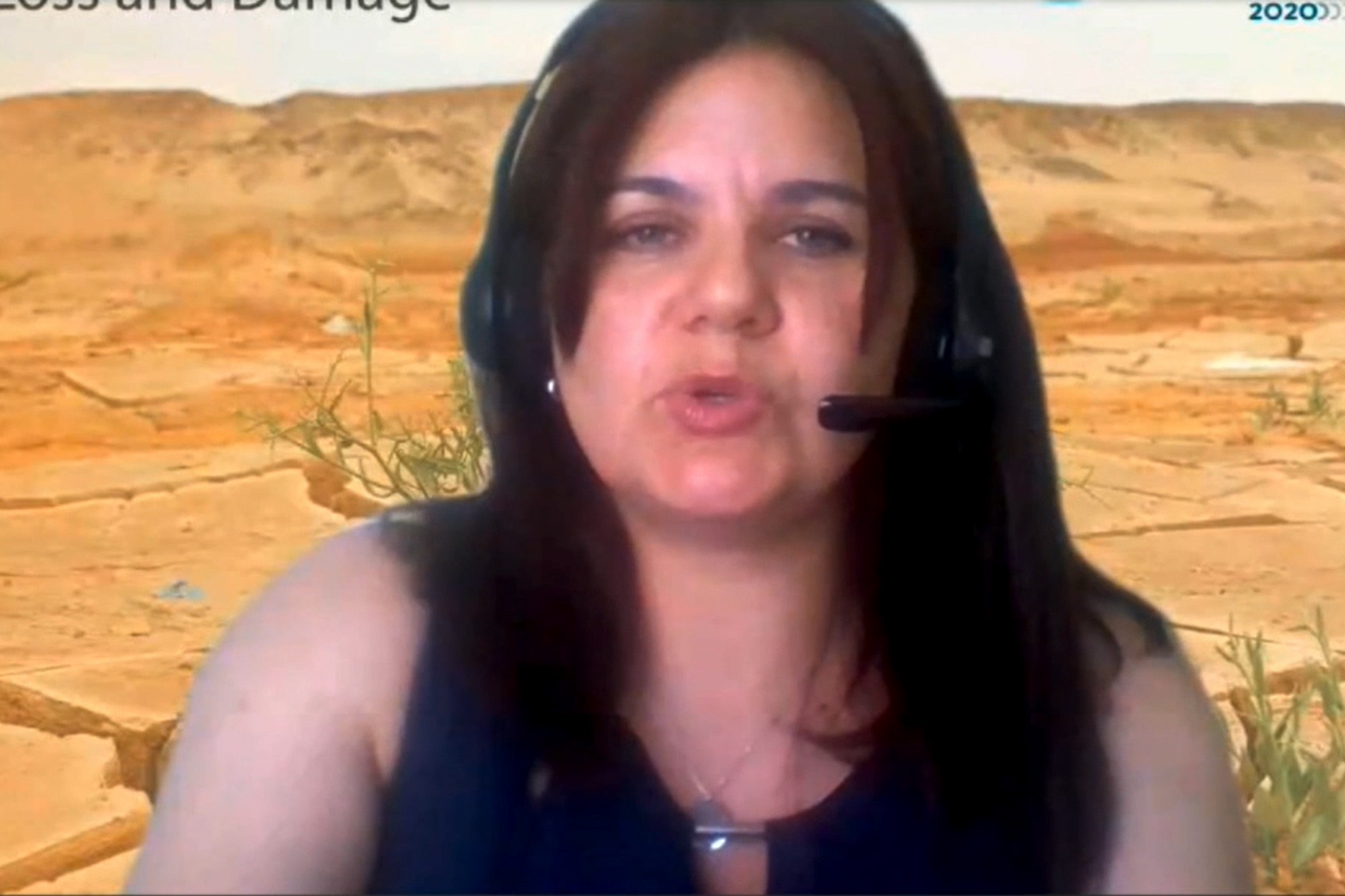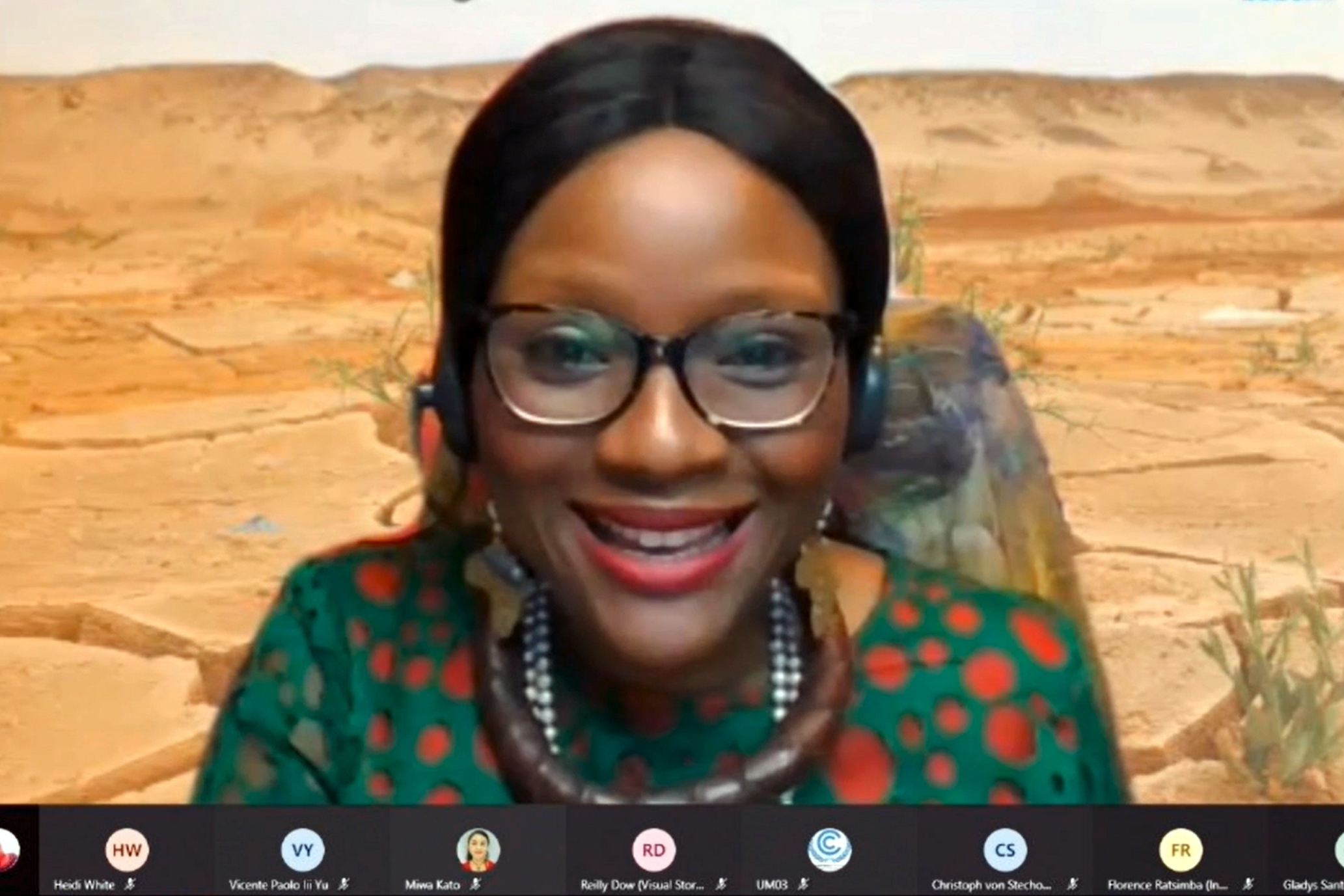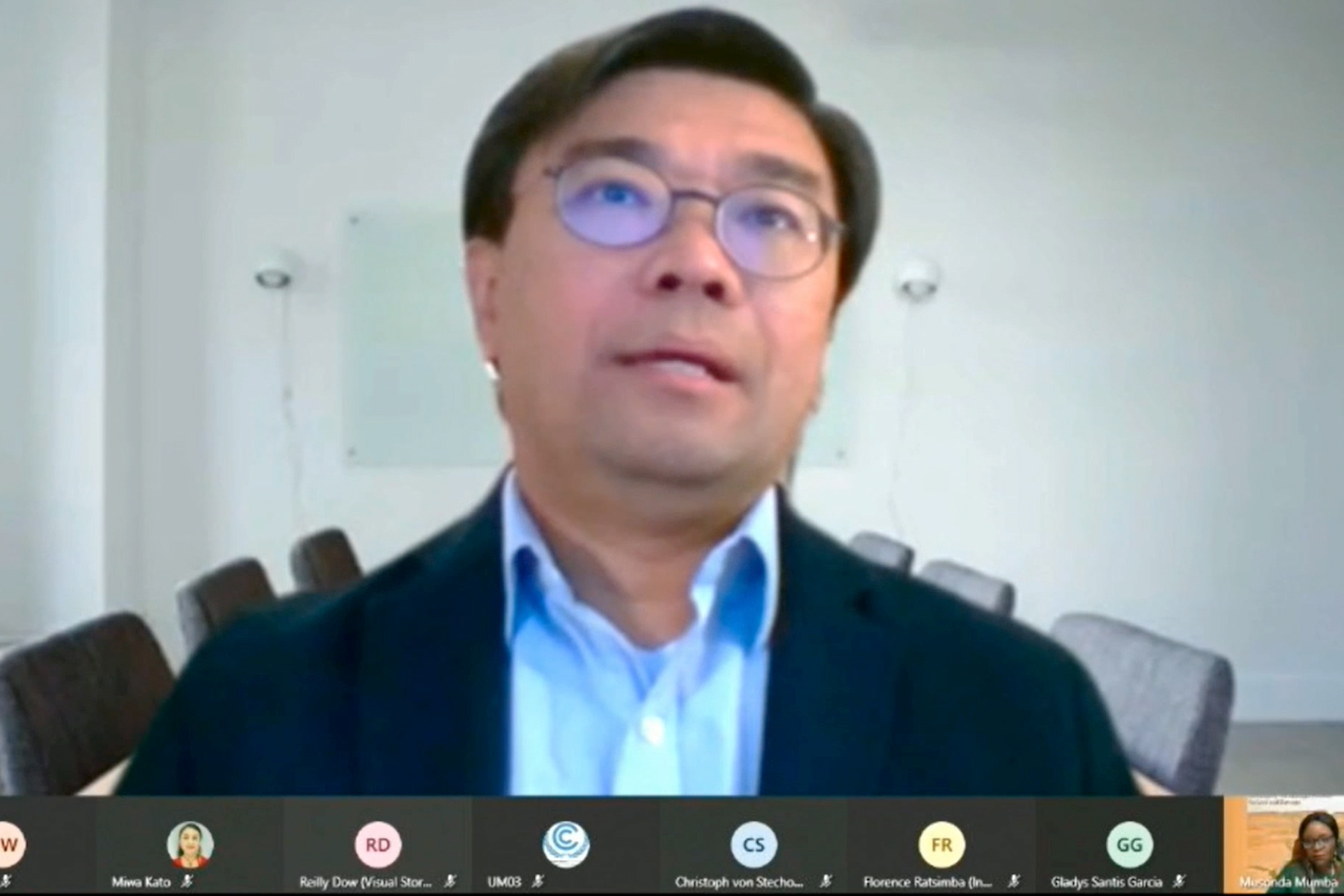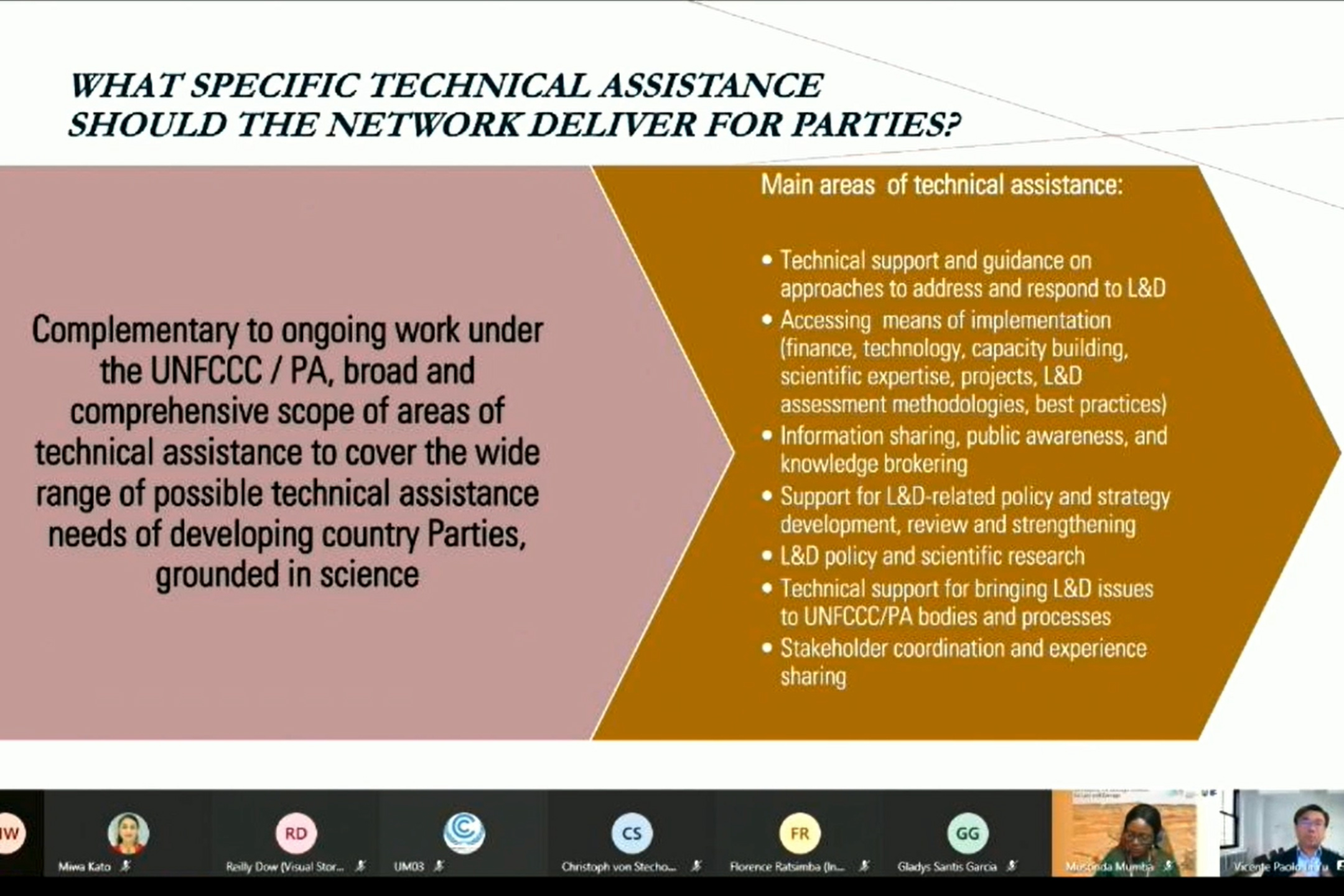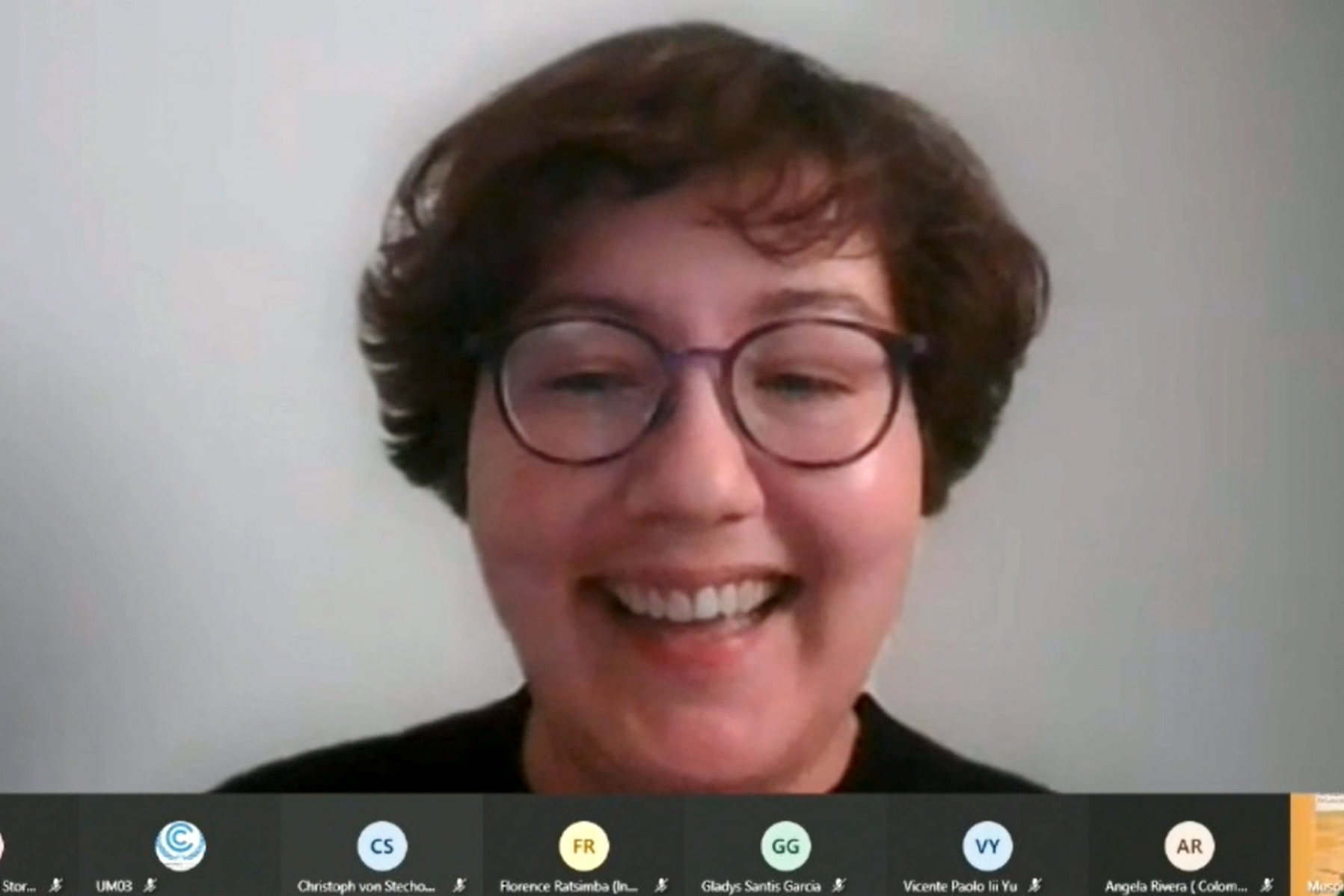UN Climate Change Dialogues 2020
23 November - 4 December 2020 | Online
Highlights for Thursday, 3 December 2020
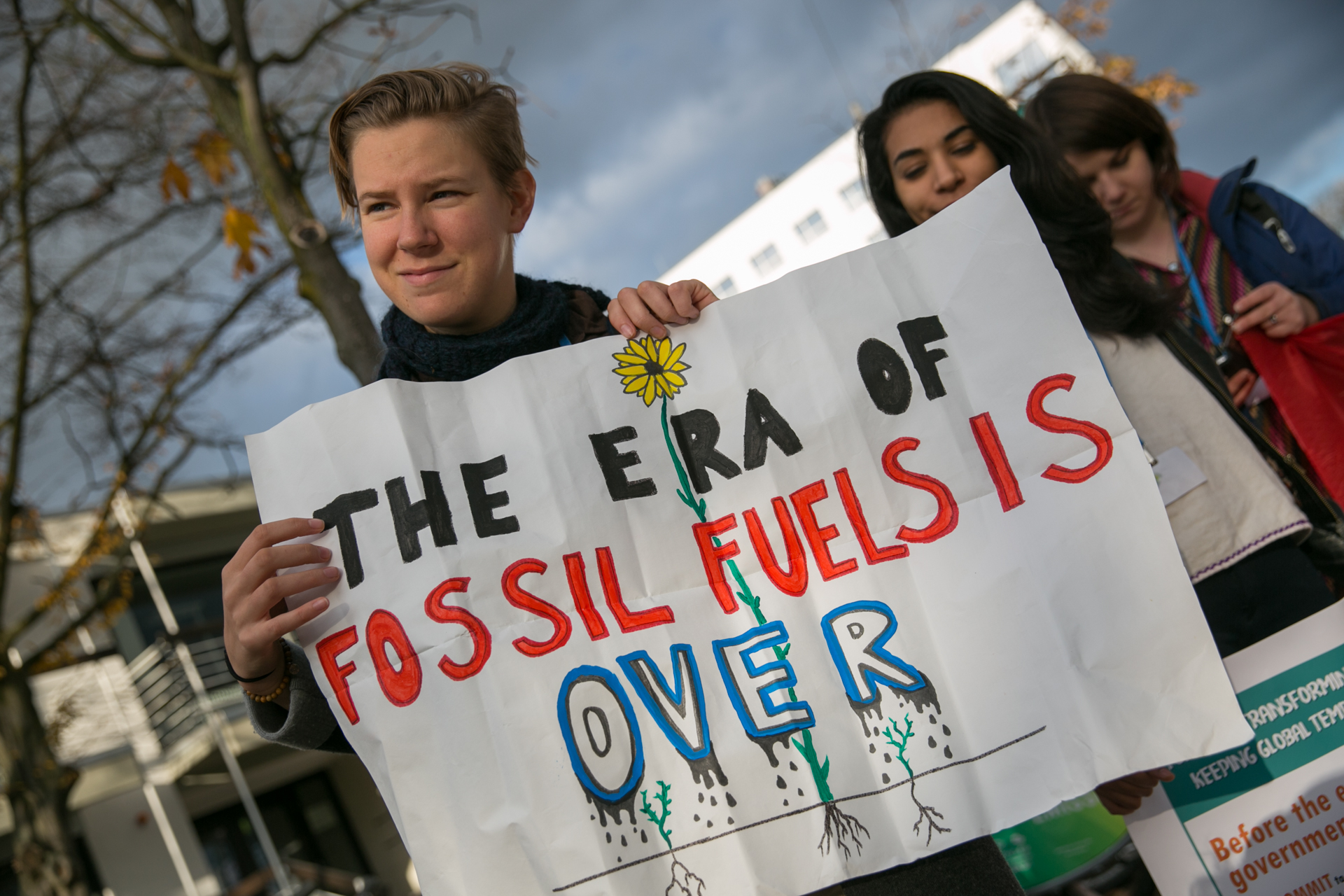
On Thursday, the Climate Dialogues featured sessions on the least developed countries’ 2050 vision, the Adaptation Fund, loss and damage, and the relationship between climate change and the ocean, among others.
Closed sessions addressed common time frames for Nationally Determined Contributions (NDCs), and matters related to the review of the Doha work programme for Article 6 of the Convention (education and training).
Least Developed Countries 2050 Vision and Initiatives
Opening this session, Sonam Phuntsho Wangdi, Chair of the Least Developed Countries (LDC) Group, Bhutan, said LDCs have stepped forward with an ambitious vision and are leading initiatives, but need other countries to make deep cuts to domestic emissions and provide scaled-up support.
Fekitamoeloa Katoa 'Utoikamanu, UN Under-Secretary-General and High Representative for the LDCs, Land-Locked Developing Countries, and Small Island Developing States, highlighted the need to focus on adaptation and ensure funding is stepped up, calling for partnerships and coordinated efforts.
Phento Tshering, LDC Group Lead Negotiator, Bhutan, elaborated on three LDC initiatives: the LDC Initiative for Effective Adaptation and Resilience (LIFE-AR), the LDCs Renewable Energy and Energy Efficiency Initiative (LDC-REEEI), and the LDCs University Consortium on Climate Change (LUCCC).
A panel discussion considered the LDC Initiatives and synergies in delivering support to the LDCs. Key highlights included:
- LIFE-AR can help upscale implementation of good practices from previous projects;
- LDC-REEEI is intended to help countries leapfrog development steps by adopting renewable energy and improving access to energy; and
- Universities are often among the most stable institutions in LDCs, and can help build capacity at the local level through LUCCC.
In closing remarks, Wangdi said the LDC initiatives can support the green recovery from the COVID-19 pandemic, but need increased resources.
Adaptation Fund Event
In opening remarks, Marianne Karlsen, Chair of the Subsidiary Body on Implementation (SBI), noted that 2021 will mark the twentieth anniversary of the establishment of the Adaptation Fund (AF). She highlighted that it has developed into an important vehicle for supporting adaptation projects by using innovative funding modalities, including the pioneering of direct access.
Ibila Djibril, Chair of the AF Board, emphasized that direct access enhances country ownership and ensures funding is used where it is most needed.
Andrea Meza Murillo, Costa Rica, underscored the AF’s track record in implementing successful projects in a timely manner.
Huw Davies, for the COP 26 Presidency, said making adaptation finance more predictable, accessible, and effective is a priority. He assured participants that the UK will continue to call on donors to increase support for adaptation, especially in grant-equivalent terms. He pointed to the AF Contributor Dialogue, which will take place on 14 December.
Sonam Phuntsho Wangdi, Bhutan, Chair of the LDC Group, underscored the need to finalize negotiations on the Paris Agreement's Article 6 (cooperative approaches) to have shares of proceeds supporting the AF.
Speakers provided a strong endorsement of the Fund, highlighting features such as:
- Support for tailoring project to local needs;
- Flexibility for adjusting projects during the COVID-19 pandemic;
- A strong track record in funding projects that are later scaled up with support from, among others, the Green Climate Fund or the World Bank;
- A focus on women’s empowerment, and ensuring engagement of end users;
- The standing Dialogue with Civil Society Organizations at AF Board meetings; and
- The AF’s emphasis on self-assessment and continuous improvement.
Presidency’s Open Dialogue between Observers and Parties
This event focused on promoting an exchange of ideas, experiences, and lessons learned between observers and parties on facilitating ambition within a green recovery.
Alok Sharma, COP 26 President, stressed that achieving net zero and building resilience is only possible through joint efforts between parties and non-party stakeholders, noting the latter are vital for encouraging parties to raise ambition. He said a comprehensive agreement at COP 26 must be informed by "voices that have too often been marginalized."
Patricia Espinosa, UNFCCC Executive Secretary, highlighted the importance of exploring ways to enhance participation of non-party stakeholders.
Key insights from the ensuing discussion between observer constituencies and parties included:
- Governments must work with all stakeholders in formulating their enhanced NDCs;
- The need to address the COVID-19 recovery in a way that also advances the green transition and the necessary structural transformation of economies;
- Though the Production Gap Report 2020 states that fossil fuel production must decline by 6% per year until 2030 in order for Paris goals to be met, governments from the Group of 20 have committed over USD 230 billion to the fossil fuel industry since the start of the COVID-19 pandemic;
- It is beneficial for a host country to "have its own house in order," to better encourage others to raise ambition;
- The COVID-19 crisis and climate change are gendered crises, and both the recovery and climate action must be ambitious, inclusive, and gender-responsive;
- Multilevel action is key to raising national ambition, and efforts by subnational and regional governments should be formally recognized;
- Young people have continued to organize despite the pandemic, and call upon parties to give space and resources for youth to self-organize.
Developing the Santiago Network for Loss and Damage
This session provided an informal space for parties and observers to share ideas on how to continue the development of the Santiago Network to effectively catalyze technical assistance for developing countries to avert, minimize, and address loss and damage. Interventions focused on: what the Network should deliver for parties; and how the Network should be structured in order to deliver the identified functions.
Gladys Santis, for the COP 25 Presidency, recalled the decision adopted at COP 25 to establish the Santiago Network and noted the UNFCCC Secretariat had launched a web portal for the Network in June 2020. She highlighted there would be no formal outcome from the event.
Parties highlighted the Network needs to respond to a wide array of needs; with many emphasizing areas such as: data analysis, risk assessment, policy development, and accessing finance for implementing loss and damage projects. Many underscored the need to address the topics of slow-onset events and non-economic losses.
The interventions were heavy in analogies, with speakers calling for, among others: a “wedding planner” service which provides information tailored to countries’ specific needs; and a “match-making” service that would identify the most suitable experts & organizations to respond to parties' specific requests for support.
One group spoke of emulating dating-app/sharing economy modalities for reviewing quality of support received. Many referred to the Climate Technology Centre and Network as a good model, and some also pointed to the Fiji Clearing House for Risk Transfer. National contact points for loss and damage were highlighted as important.
Archie Young, for the COP 26 Presidency, highlighted discussions would continue throughout 2021, both on the function and structure of the Network.
Ocean and Climate Change Dialogue
This dialogue, which started on Wednesday and continued on Thursday, aimed for parties and non-party stakeholders to reflect on how to strengthen mitigation and adaptation in an ocean-context.
In the high-level opening segment on Wednesday, Peter Thomson, the UN Secretary-General’s Special Envoy for the Ocean, reiterated the call that there is “no healthy planet without a healthy ocean.” He underlined the ocean’s role in heat control and the capture of greenhouse gases, as well as the potential for an ocean-based economy to deliver a significant portion of emissions reductions.
Patricia Espinosa, UNFCCC Executive Secretary, called for parties to practice “inclusive multilateralism” and to include the voices of local communities and Indigenous peoples in considering ocean-related mitigation and adaptation in their NDCs.
Hans-Otto Pörtner and Elvira Poloczanska, Intergovernmental Panel on Climate Change (IPCC) Working Group II, presented key messages from the IPCC Special Report on the Ocean and Cryosphere in a Changing Climate, noting, among others, that:
- Shifting ocean physics and chemistry due to warming are affecting marine life, especially warm-water coral reefs;
- Current projections for sea-level rise by 2300 range from under 1 meter to several meters, depending on mitigation levels; and
- Ambitious mitigation is essential to avoid the worst effects of climate change for ocean ecosystems and livelihoods.
In breakout groups, participants discussed opportunities to strengthen ocean-climate action within the UNFCCC, and across UN agencies. Some participants called for an opportunity to formally present the summary of the Ocean and Climate Change Dialogue at COP 26.
The second day opened with a keynote from Jane Lubchenco, Co-Chair of the High Level Panel for a Sustainable Ocean Economy. She highlighted that ocean-based actions provide powerful, but mostly untapped opportunities for both mitigation and adaptation.
As promising solutions, she pointed to:
- Investing in ocean-based renewable energy;
- Protecting and restoring blue carbon ecosystems;
- Incentivizing the transition to decarbonized shipping;
- Shifting diets toward low carbon marine sources; and
- Supporting a global target to fully protect 30% of the ocean by 2030.
In breakout groups, participants discussed options for strengthening ocean-climate action at national level, and strengthening cross-cutting support for action.
Images from the Meeting
Videos from the Meeting
UNFCCC Resources
IISD/ENB Meeting Coverage
- High-level Roundtable on Climate Action, 24 September 2020, Online
- June Momentum for Climate Change, 1-10 June 2020, Online
- 52nd Session of the Intergovernmental Panel on Climate Change (IPCC-52), 24-28 February 2020, Headquarters of the UN Educational, Scientific and Cultural Organization (UNESCO), Paris, France
- Chile/Madrid Climate Change Conference, 2-15 December 2019, Madrid, Spain
- ENB Coverage of Climate Change Meetings
IISD Resources
- Subscription Page for ENB Update, SDG Update, and Peer-to-Peer Community Mailing Lists (including Climate News, SDG News, Biodiversity News, Ocean News, Forests News, Trade and Sustainable Development News, and Regional Updates)
- SDG Update Newsletter - A compilation of news, commentary and upcoming events published on the SDG Knowledge Hub
- SDG Knowledge Hub - An Online Resource Center for News and Commentary Regarding the Implementation of the United Nations’ 2030 Agenda for Sustainable Development, including all 17 Sustainable Development Goals (SDGs)

